Whether you’ve got 10 days, 2 weeks, 3 weeks, or a full month, this guide breaks down what you can realistically see and do based on how long you’re staying.
From exploring George Town’s culture and history (and yes — the street food is amazing) to the wild jungles of Borneo, Malaysia is incredibly diverse. But the real highlight for me? The people. Seriously some of the kindest and most welcoming I’ve met. I was invited to dinner by complete strangers on the street — probably thanks to Islamic New Year falling during my visit — and I even got free rides when I asked for directions. People truly seemed to care that visitors had a good experience.
Beyond the people, what really defines Malaysia is its multicultural mix, lush rainforests, and wildlife encounters — both on land and underwater.
In this post, I’ll walk you through several Malaysia itinerary options, so you can plan your trip depending on how much time you have. I stayed for six weeks myself, which gave me time to do it all slowly and enjoyably — but you can experience a lot in just 10 or 14 days too.
Not sure how long to stay or whether Malaysia fits your travel vibe? Scroll through the common questions — or dive straight into the itineraries to start planning. Each destination is linked for more in-depth reading — just click on the ‘Read More’ link.
Common questions about Malaysia
Absolutely! Malaysia offers an unforgettable mix of vibrant cities, serene islands, dense jungles, and diverse cultures. Whether you’re a foodie, an adventurer, or someone who loves learning about different cultures, Malaysia has something for everyone. Plus, with its laid-back vibe, it’s a place where you can truly immerse yourself without the rush of typical tourist spots.
Well, it really depends on the kind of experience you’re after. But if you ask me, I’d say a minimum of 10 days. That gives you just enough time to scratch beneath the surface—more than just a few brushstrokes—without feeling like you’re rushing from place to place.
When planning your route, keep in mind that Malaysia is a large country with a lot to offer, from the peninsular region to the island of Borneo. So depending on your available time, you may want to focus on one region, or try to explore both but focusing on the highlights.
A few things to keep in mind:
Transportation: Malaysia is well-connected by flights, buses, and trains, making it easy to get around. If you’re short on time, flying between destinations might be your best bet.
Pack Light: Malaysia’s tropical climate means you’ll want breathable, lightweight clothes—and don’t forget a rain jacket. Sudden showers are pretty common, so it’s good to be prepared. If you can travel with just two cabin bags, you’ll save on checked luggage fees and skip the baggage carousel wait.
Malaysia 10-day itineraries – Perfect for first-timers
10-day itinerary of West & East Malaysia – Highlights
Short on time and want to maximize your Malaysia experience? This itinerary mixes buzzing cities, historic towns, wild jungles, and unforgettable wildlife encounters.
| Day | Destination | Activities/Notes |
|---|---|---|
| 1-2 | Kuala Lumpur | Arrival and explore the capital – Petronas Towers, street food, Batu Caves. Read more |
| 3-4 | George Town (Penang) Bus from Kuala Lumpur | Discover Little India, Penang Hill, Kek Lok Si Temple, Snake Temple, National Park, beaches. Read more |
| 4 | Sandakan Flight from George Town | Travel day to Borneo – gateway to wildlife adventures. Read more |
| 5-6 | Sepilok Taxi or minivan from Sandakan | Orangutan Rehabilitation Center, Sun Bear Sanctuary, forest hikes. Read more |
| 7-9 | Kinabatangan Bus or minivan from Sepilok or Sandakan | Jungle river cruises; spot monkeys, birds, pigmy elephants, crocodiles. Read more |
| 10 | Kuala Lumpur Flight from Sandakan | Return to KL and prepare for departure. |
10-day itinerary of West Malaysia – Optimized for Travel Time
From tea-covered hills and historic towns to tropical islands and buzzing cities—this route gives you a little of everything while keeping the travel flow smart and efficient.
| Day | Destination | Activities/Notes |
|---|---|---|
| 1-2 | Kuala Lumpur | Arrival and explore the capital – Petronas Towers, street food, Batu Caves. Read more |
| 3-4 | Cameron Highlands Bus from Kuala Lumpur | Tea plantations, scenic hikes, mossy forest. Read more |
| 3-4 | Alternative path Taman Negara Bus from Kuala Lumpur | Jungle trekking, canopy walk, river rides. Read more |
| 5-6 | George Town (Penag) Bus from above desination | Colonial history, Little India, Penang Hill, Kek Lok Si Temple, food scene, beaches. Read more |
| 7-9 | Langawi Flight from George Town | Beach life, cable car views, island hopping. Read more |
| 10 | Kuala Lumpur Flight from Langawi | Return to KL and fly out |
Borneo 10-day itinerary – Nature and Animal Enthusiasts
If you’re all about wildlife, rainforests, and getting off the beaten path, East Malaysia (on the island of Borneo) is your dream. Orangutans, pygmy elephants, crocodiles, and some of the best diving in Asia—it’s wild in the best way. Have in mind that much of the rainforest is already cutdown, however there are some parts left where wildlife is still thriving.
| Day | Destination | Activities/Notes |
|---|---|---|
| 1 | Sandakan | Arrival to Borneo – gateway to wildlife adventures – Leave the same day since Sepilok is place of interest. Read more |
| 1-2 | Sepilok Taxi or minivan from Sandakan | Orangutan Rehabilitation Center, Sun Bear Sanctuary, forest hikes. Read more |
| 3-5 | Kinabatangan Bus or minivan from Sepilok or Sandakan | Jungle river cruises; spot monkeys, birds, pigmy elephants, crocodiles. Read more |
| 6-7 | Danum Valley Conservation Area Minivan from Kinabatangan | Deep rainforest, pristine trails, rare wildlife like clouded leopards and red leaf monkeys. Read more |
| 8-9 | Islands around Semporna Minivan from Danum Valley | Snorkeling and diving; if you’re advanced certified, consider Sipadan – world-class diving spot otherwise Mabul & Kapalai islands. Read more |
| 10 | Tawau Minivan or Bus from Semporna | Fly back from Taway (The closes airport to Semporna). |
Malaysia 2-week itinerary – Balanced Mix of Culture, Nature, and Beaches
This 2-week itinerary in Malaysia is perfect for someone two wants a good mix of culture, nature and beaches. It’s designed to hit the highlights, skip the tourist traps, and keep travel time low — so you can spend more time enjoying and less time moving. You’ll soak up history and culture in west Malaysia, then dive into wild adventures in Borneo — from spotting orangutans and pygmy elephants to diving and snorkeling with amazing sealife.
| Day | Destination | Activities/Notes |
|---|---|---|
| 1-2 | Kuala Lumpur | Arrival and explore the capital – Petronas Towers, street food, Batu Caves. Read more |
| 3-4 | George Town (Penang) Bus from Kuala Lumpur | Discover Little India, Penang Hill, Kek Lok Si Temple, Snake Temple, National Park, beaches. Read more |
| 5-6 | Langkawi Flight from George Town | Beach life, cable car views, island hopping. Read more |
| 7 | Sandakan Flight from Langkawi | Travel day to Borneo, transfer to Sepilok after arrival – gateway to wildlife adventures. Read more |
| 7-8 | Sepilok Taxi or minivan from Sandakan | Orangutan Rehabilitation Center, Sun Bear Sanctuary, forest hikes. Read more |
| 9-11 | Kinabatangan Bus or minivan from Sepilok or Sandakan | Jungle river cruises; spot monkeys, birds, pigmy elephants, crocodiles. Read more |
| 12-13 | Islands around Semporna Bus or minivan from Kinabatangan | World-class diving and snorkeling. Read more |
| 14 | Kuala Lumpur Flight from Semporna | Return to KL and prepare for departure |
Malaysia 3-week itinerary – For the Curious Traveler Who Wants it All
This 3-week Malaysia itinerary follows a similar route to the 2-week version but moves at a more relaxed pace — with time to breathe, wander, and explore deeper. It adds two jungle trekking gems: Cameron Highlands and Taman Negara.
Cameron Highlands is cooler and mistier, perfect for scenic hikes and tea plantations. In contrast, Taman Negara brings the heat — and the raw jungle vibes. Together, they hit that sweet spot between travel time and experiencing the best of what Malaysia has to offer.
| Day | Destination | Activities/Notes |
|---|---|---|
| 1-2 | Kuala Lumpur | Arrival and explore the capital – Petronas Towers, street food, Batu Caves. Read more |
| 3-4 | Cameron Highlands Bus from Kuala Lumpur | Tea plantations, scenic hikes, mossy forest. Read more |
| 5-6 | Taman Negara Bus from Cameron Hills | Jungle trekking, canopy walk, river rides. Read more |
| 7-9 | George Town (Penang) Bus from Taman Negara | Colonial history, Little India, Penang Hill, Kek Lok Si Temple, food scene, beaches. Read more |
| 10-12 | Langawi Flight from George Town | Beach life, cable car views, island hopping. Read more |
| 13 | Sandakan Flight from Langkawi | One of the gateways to Borneo. Read more |
| 13-14 | Sepilok Taxi or minivan from Sandakan | Orangutan Rehabilitation Center, Sun Bear Sanctuary, forest hikes. Read more |
| 15-17 | Kinabatangan Bus or minivan from Sepilok or Sandakan | Jungle river cruises; spot monkeys, birds, pigmy elephants, crocodiles. Read more |
| 18-20 | Islands around Semporna Bus or minivan from Kinabatangan | World-class diving and snorkeling. Read more |
| 21 | Tawau Bus or minivan from Semporna | Fly to KL and then home |
Malaysia 1 month itinerary – Full Immersion from Cities to Borneo
This one’s for the traveler who wants to take it all in — at a relaxed pace, with time to linger, explore off the beaten path, and soak up the full Malaysian experience.
New additions to this longer route include Perhentian Islands and the Danum Valley Conservation Area.
I left the Perhentians out of the shorter itineraries because they’re a bit trickier to reach. You’ll need to fly to a nearby city, grab a taxi to the port, and then hop on a boat — beautiful, yes, but not ideal if you’re on a tighter schedule. In that case, Langkawi is a more convenient option, thanks to its airport and easier access.
I also added Danum Valley for those craving a deeper wildlife experience. It’s more remote and expensive than places like Kinabatangan, and to be honest — the added value is mostly a chance to see a few more rare animals. But if you’re into pristine jungle and don’t mind the splurge, it’s one of the best places to truly connect with Malaysian nature.
| Day | Destination | Activities/Notes |
|---|---|---|
| 1-2 | Kuala Lumpur | Arrival and explore the capital – Petronas Towers, street food, Batu Caves. Read more |
| 3-4 | Cameron Highlands Bus from Kuala Lumpur | Tea plantations, scenic hikes, mossy forest. Read more |
| 5-6 | Taman Negara Bus from Cameron Hills | Jungle trekking, canopy walk, river rides. Read more |
| 7-9 | George Town (Penang) Bus from Taman Negara | Colonial history, Little India, Penang Hill, Kek Lok Si Temple, food scene, beaches. Read more |
| 10-12 | Langawi Flight from George Town | Beach life, cable car views, island hopping. Read more |
| 13 | Kota Bharu Flight from Langawi | Transit to Perhentian Islands. |
| 13-16 | Perhentian Islands Taxi or Bus from Kota Bharu to Besut and then boat to the Islands | Snorkeling, diving, beach time, island vibes. Read more |
| 17 | Sandakan Flight from Kota Bharu | Transit to Sepilok |
| 17-18 | Sepilok Taxi or minivan from Sandakan | Orangutan Rehabilitation Center, Sun Bear Sanctuary, forest hikes. Read more |
| 19-22 | Kinabatangan Bus or minivan from Sepilok or Sandakan | Jungle river cruises; spot monkeys, birds, pigmy elephants, crocodiles. Read more |
| 23-24 | Danum Valley Conservation Area Minivan from Kinabatangan | Deep rainforest, pristine trails, rare wildlife like clouded leopards and red leaf monkeys. Read more |
| 25-27 | Islands around Semporna Bus or minivan from Kinabatangan | World-class diving and snorkeling. Read more |
| 28 | Tawau Bus or minivan from Semporna | Fly to KL and then home |
West Malaysia
Kuala Lumpur
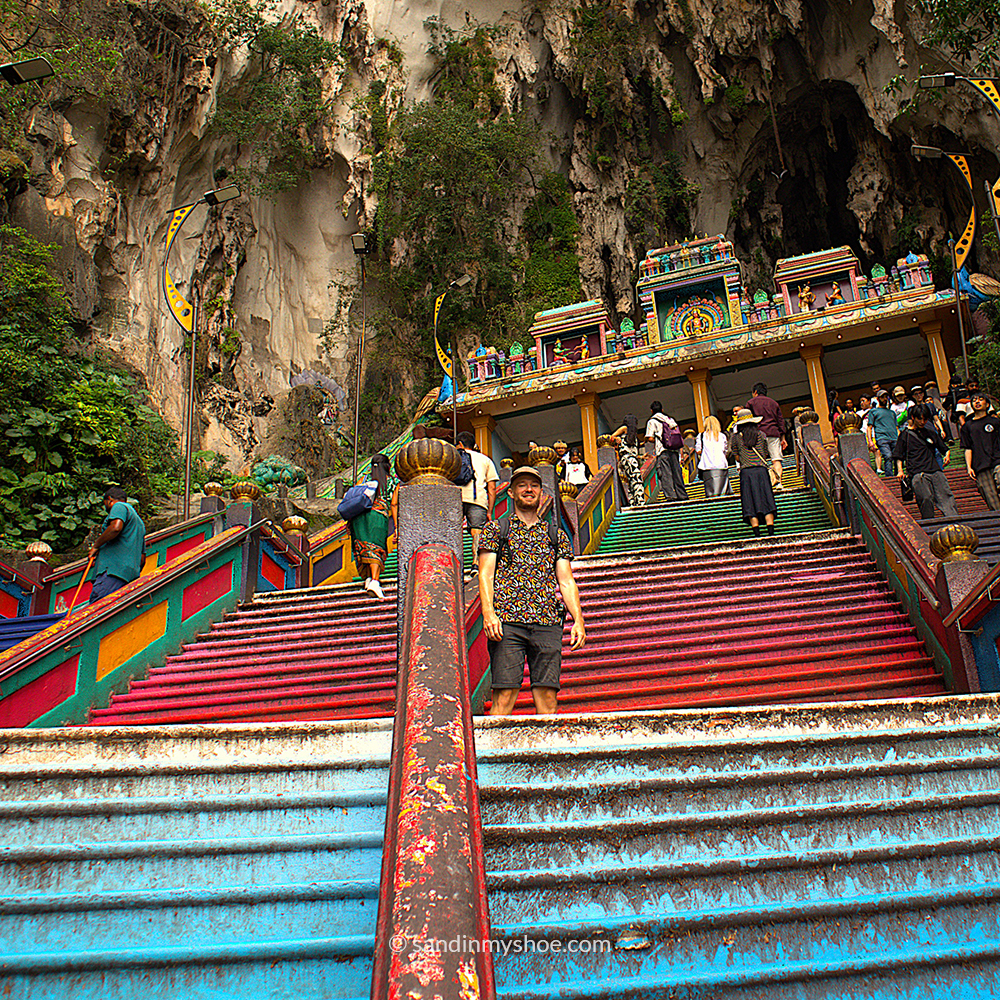
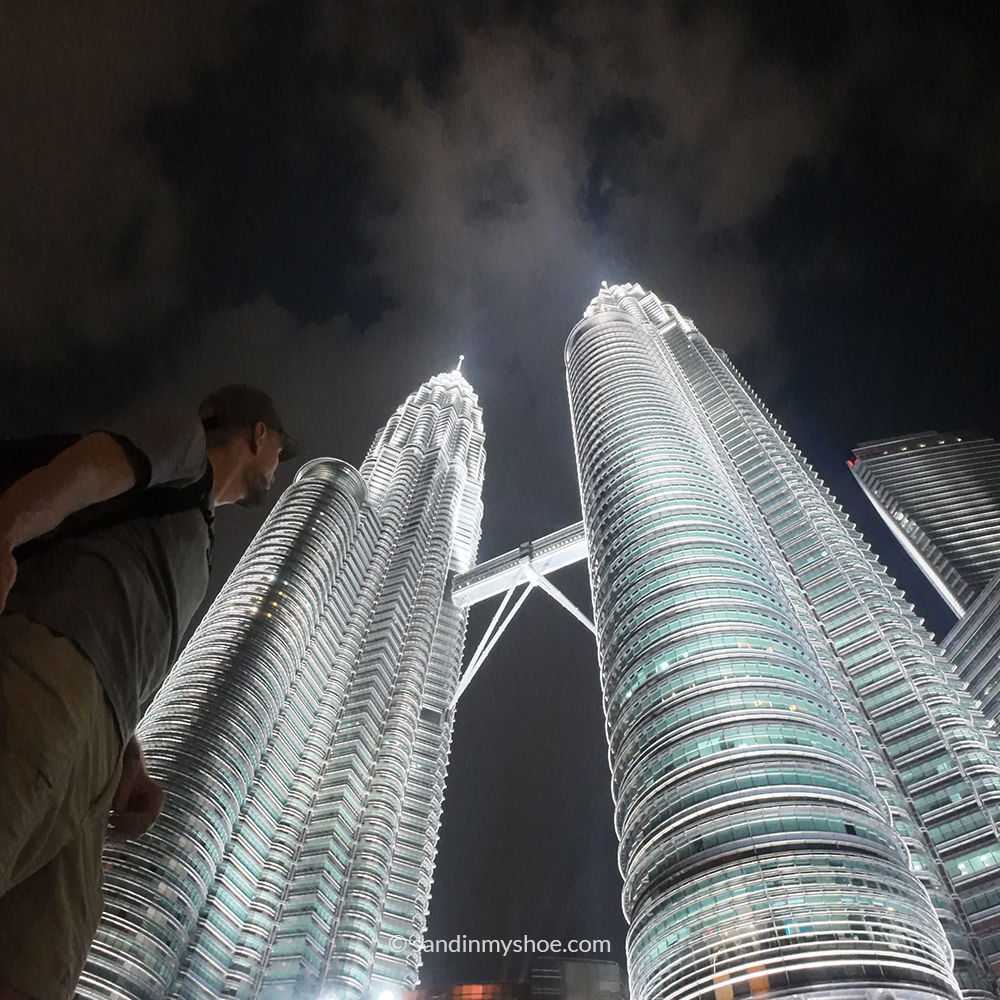
Kuala Lumpur blends iconic sights with rich cultural experiences. Be sure to visit the Bricks Field (Little India), Thean Hou Temple, Petronas Towers and the Batu Caves – just watch out for mischievous monkeys around the caves; they’re known for snatching food and belongings! If you want to learn some history, I would recommend taking a “Free walking Tour” – Great way to meet new people as well!
Tips: Rooftop pools are a relaxing way to beat the city heat and the way to eat is by exploring the city’s street food stalls.
Top street food places in KL
Jalan Alor (Bukit Bintang) – Night market vibes, satay, noodles, grilled seafood
Petaling Street (Chinatown) – Hainanese chicken rice, char kway teow, dim sum. I’d recommend Mee Tarik Restaurant in this area.
Taman Connaught Night Market (Wednesdays) – Over 700 stalls, fusion snacks
Kampung Baru – Nasi lemak, Malay satay, local desserts
Brickfields (Little India) – Roti canai, banana leaf rice, rich curries
George Town (Penang)
The best city to truly experience multicultural Malaysia is Penang. With its UNESCO-protected Chinese stilt house village and cozy Little India, Penang offers a unique glimpse into the harmonious blending of cultures, thanks to British colonialism, which brought Indians and Chinese to the area. These communities have created their own spaces in the city, adding to its charm.
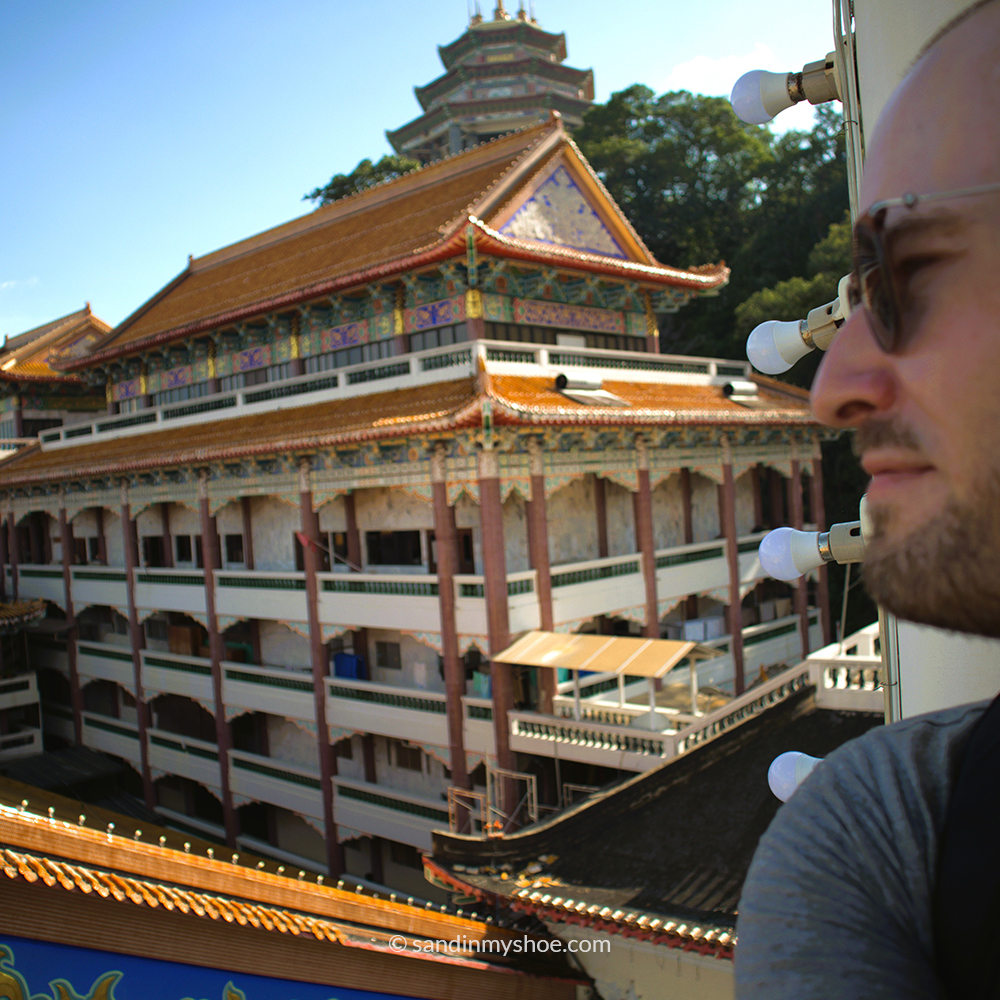
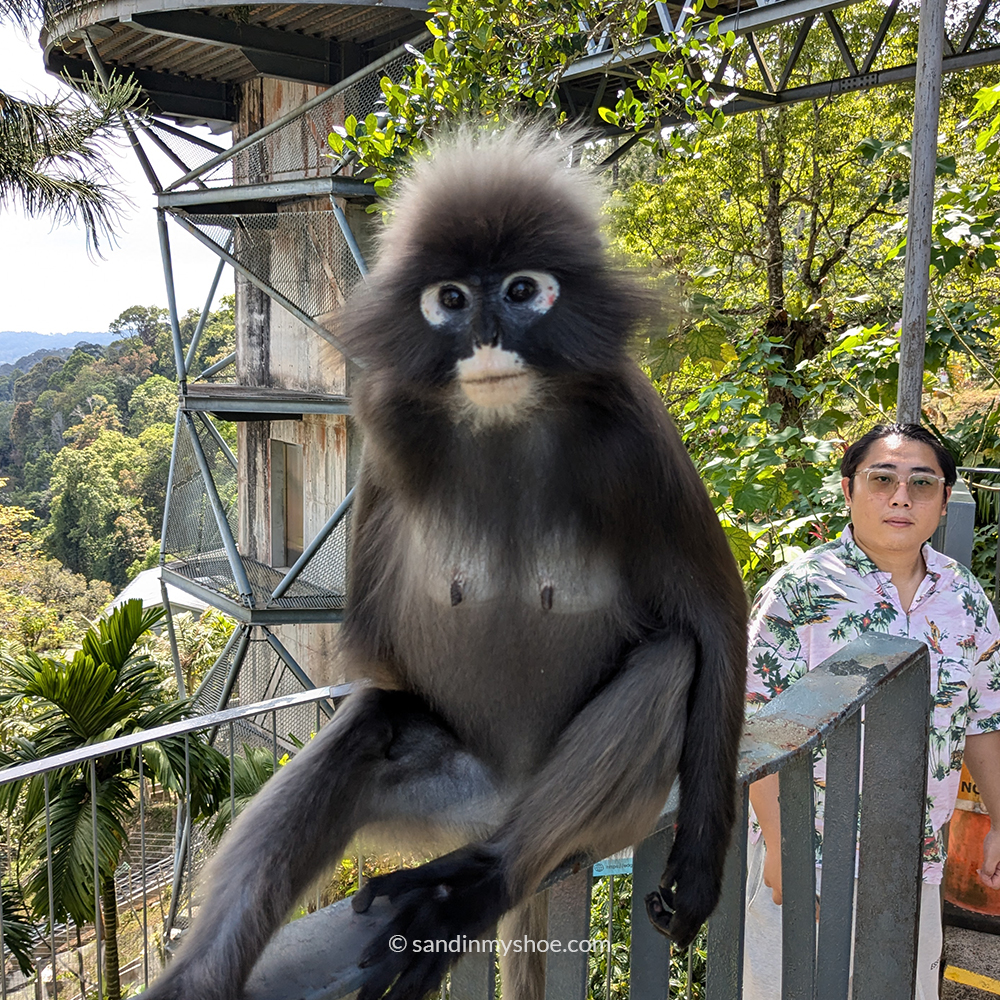
- Little India: Step into a calmer version of India, where grocery stores, clothing shops, restaurants, and even locksmiths all have an Indian flair. It’s a vibrant experience that immerses you in the essence of Indian culture.
- Chew Jetty: A UNESCO World Heritage site, these stilt houses were built by Chinese immigrants, and many of their descendants still live here today. You can walk along the jetties, shop for souvenirs, enjoy ice cream, and try the local specialty—nutmeg juice.
- Penang Hill: You can take a cable car or, if you’re up for a challenge, hike to the top. Once there, enjoy stunning views, and you might even spot some playful monkeys. You can also take a bus down the hill to explore more of the area.
- Kek Lok Si Temple: Located on Penang Hill, this large Buddhist temple is known for its impressive pagodas and a pond filled with hundreds of tortoises. It’s a peaceful place to admire stunning architecture and relax in serene surroundings.
- Penang National Park: A great destination for nature lovers, this park offers hiking trails through tropical rainforest, leading to secluded beaches. Despite being one of the smallest national parks in the world, it’s rich in biodiversity.
- Snake temple with venomous snakes within arm’s reach. Be careful not to get too close!
Besides these, Penang also offers many more sights within the city, all within walking distance:
- Fort Cornwallis: A historical fort dating back to the 18th century, offering insight into Penang’s colonial past and strategic importance.
- Museums: Penang has several museums showcasing its rich cultural heritage, from art to history to local traditions.
- Cheong Fatt Tze Mansion (Aka The Former Playboy House): Once home to a wealthy Chinese merchant who had 9 wives, this mansion was featured in Crazy Rich Asians. It’s a fascinating and quirky part of Penang’s history.
Penang is the perfect place to experience Malaysia’s multiculturalism, combining history, local culture, and natural beauty in one destination.
Langkawi Island
Langkawi is a chill island with a bit of everything—nice beaches, jungle, waterfalls, and a few touristy spots if you’re into that. Renting a scooter is the way to go here. Super easy to get around and you can find your own little corners away from the crowds.
The beaches are decent. Cenang is the main one—kind of busy and commercial, but still nice for sunset and food. If you want something quieter, check out Tanjung Rhu or Pantai Kok. Water is calm, good for swimming, and there are some spots for snorkeling but nothing crazy.
There’s also a cable car going up to a viewpoint with a sky bridge. Touristy, yeah, but the view is pretty epic if the sky’s clear. You can also find a few jungle trails and waterfalls inland, like Temurun or Seven Wells. Not the most amazing hikes, but they’re refreshing and worth a quick stop.
Langkawi is duty-free too, so alcohol and chocolate are cheap. Great if you’re on a budget or just want a cold beer on the beach for a great price! ;)
Overall: super relaxed vibes, friendly people, and easy-going days. Not wild or full of parties, but perfect if you want to slow down a bit and enjoy island life.
Perenthian islands
The Perhentian Islands are made up of two main islands: one large (Pulau Perhentian Besar) and one small (Pulau Perhentian Kecil). Families usually stay on the larger island, while the smaller one is a haven for backpackers and those looking for a quieter, social atmosphere. I stayed on the smaller island, and it was exactly what I was looking for. As soon as I arrived, I jumped straight into the water. It felt like finding a hidden spot in the world—peaceful, natural, with birds soaring overhead and the clear blue water all around.
Just be aware of mosquitoes at night, so make sure to bring some repellent.
Small Island (Pulau Kecil)
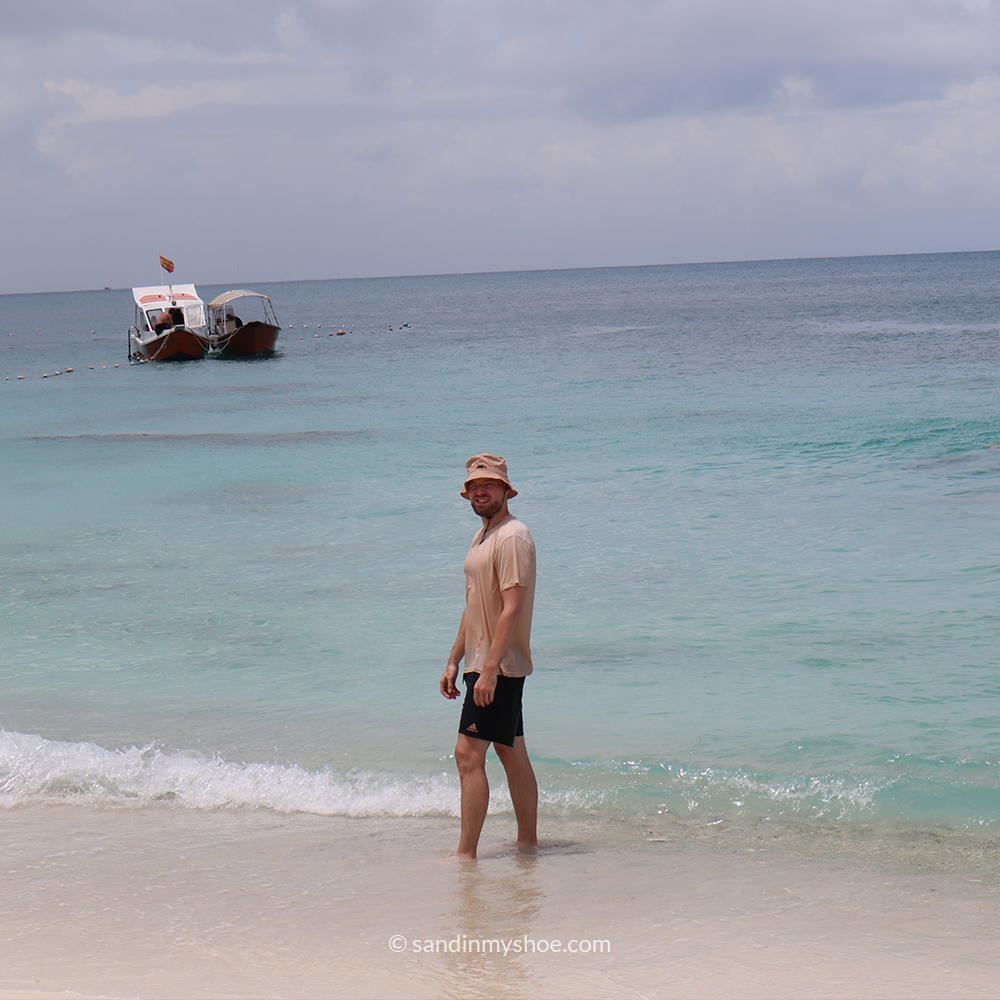
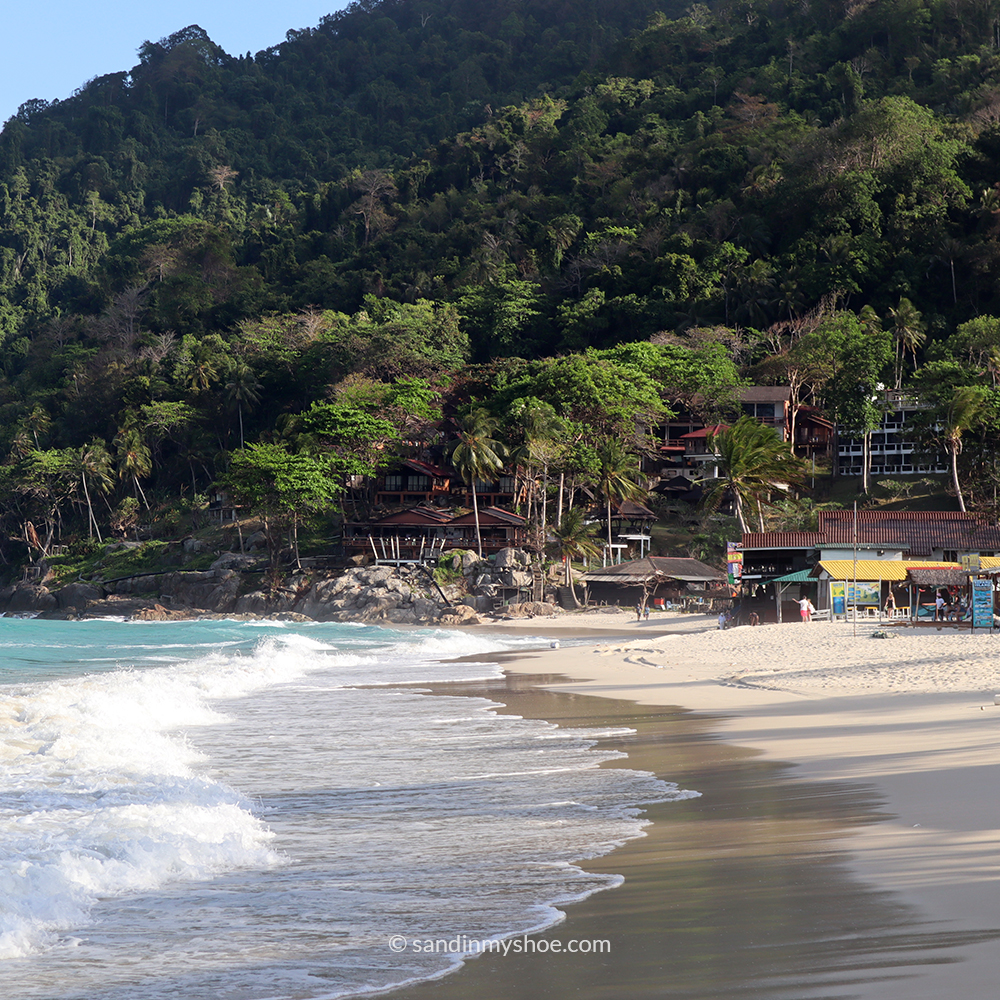
The island is small and easy to explore, and it’s recommended to stay in the center of the island, as that’s where most of the restaurants and nightlife are located, making it easier to enjoy the island’s relaxed social scene. In the center, you’ll find:
- Long Beach, which has bigger waves, perfect for those looking to relax by the water with a bit more movement.
- Coral Bay, offering calm, gentle waves, making it ideal for swimming and easy snorkeling.
During the day, you can dive, snorkel, or simply relax on the beach. In the evening, you can unwind at your resort or grab a bite at one of the beachside restaurants. If you want to see turtles, sharks, and stunning coral reefs, you’ll need to book a tour, as swimming near the shore will only give you a glimpse of a few small fish.
It’s a small, peaceful island—the kind of place where you can enjoy both nature and tranquility.
Cameron Highlands
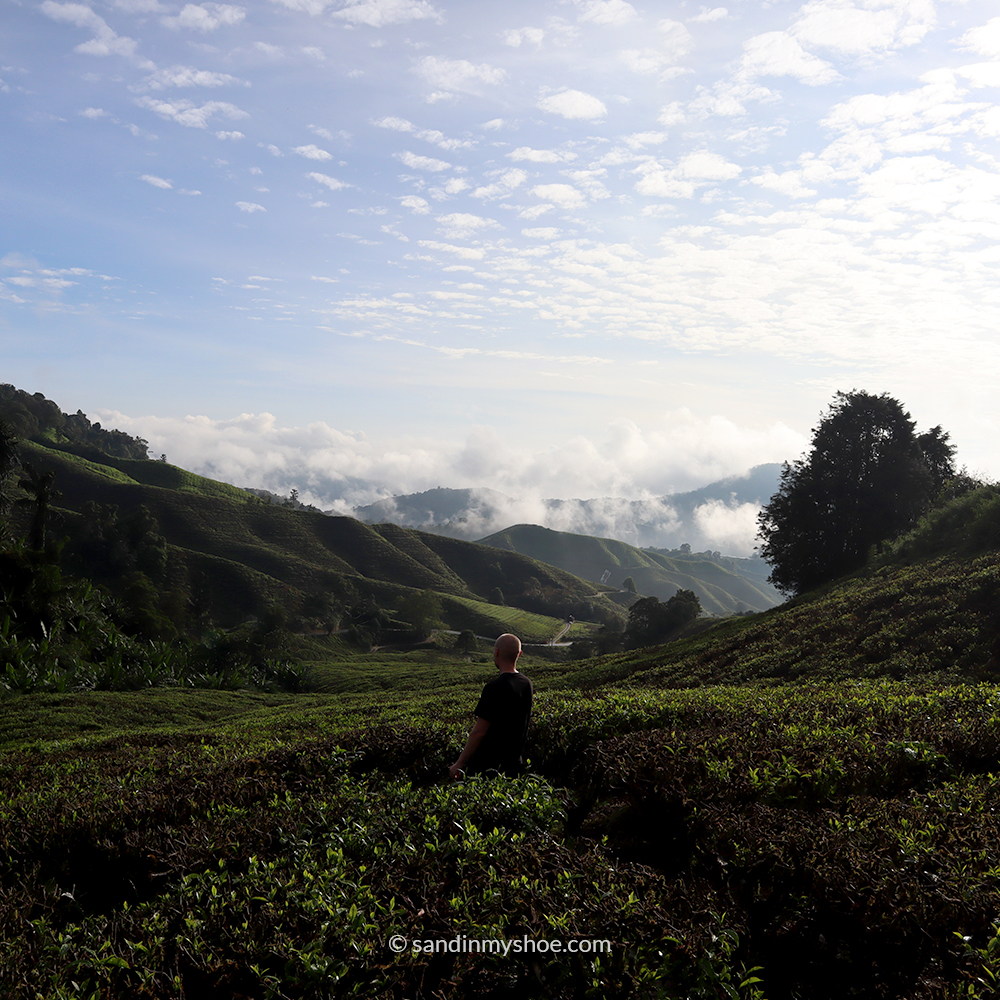
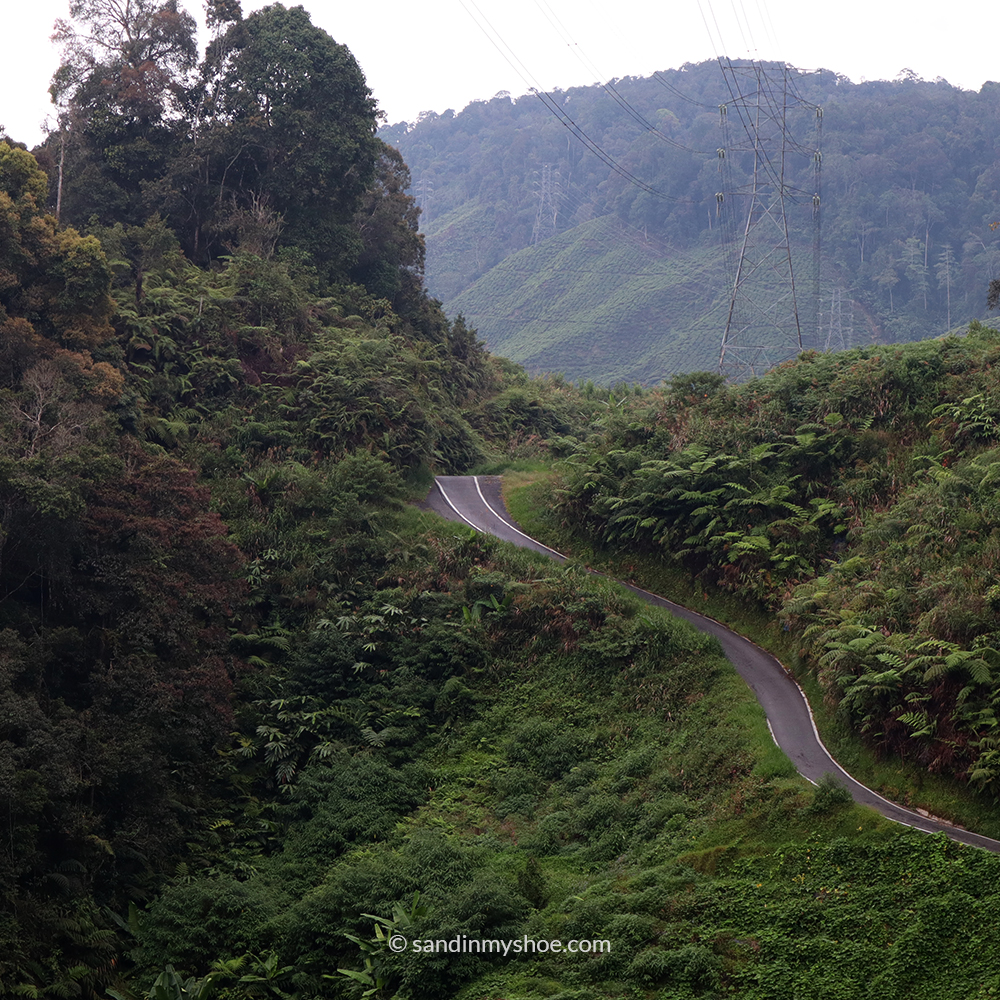
Cameron Highlands offers a serene escape with lush mossy forests, peaceful and challenging hiking trails, and breathtaking views of expansive green tea plantations. Located in the mountains, the area enjoys a cooler climate, so be sure to bring a sweater and pants for comfort during your visit. It’s a perfect spot for nature lovers and those seeking a quiet retreat.
Taman Negara
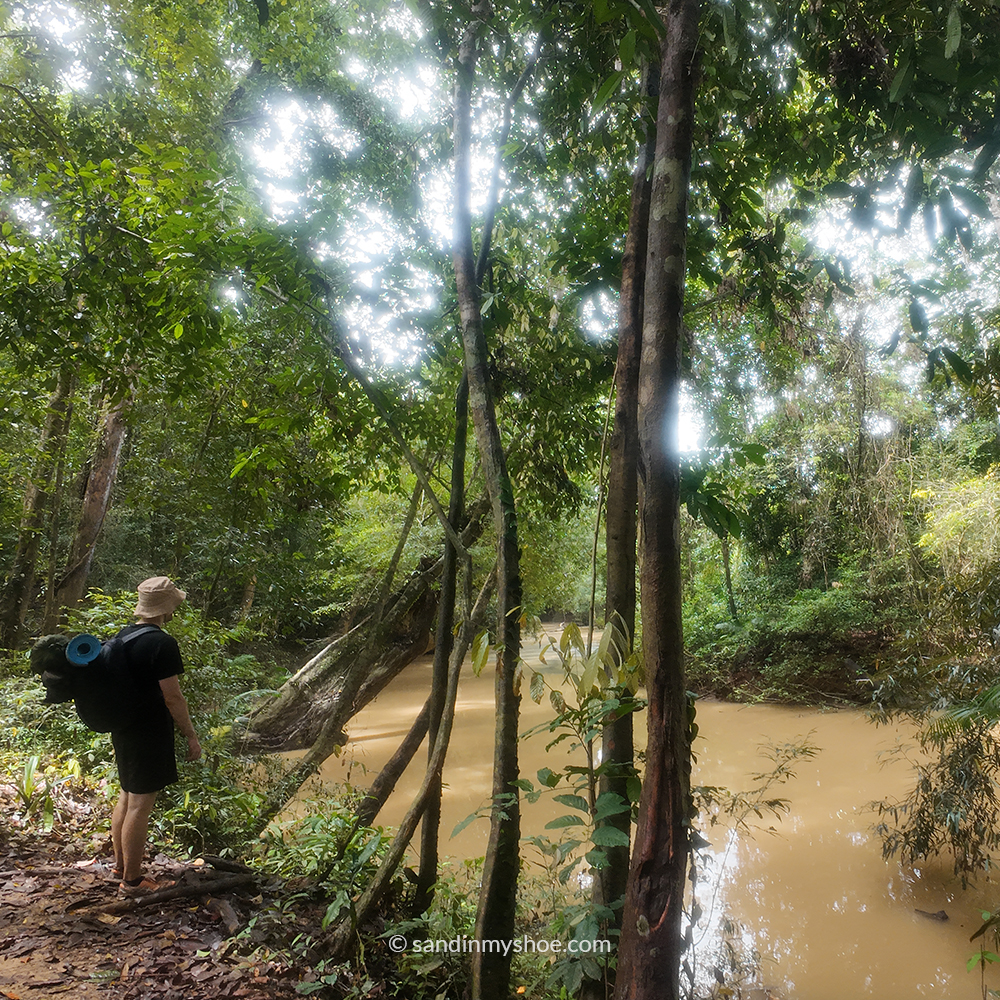
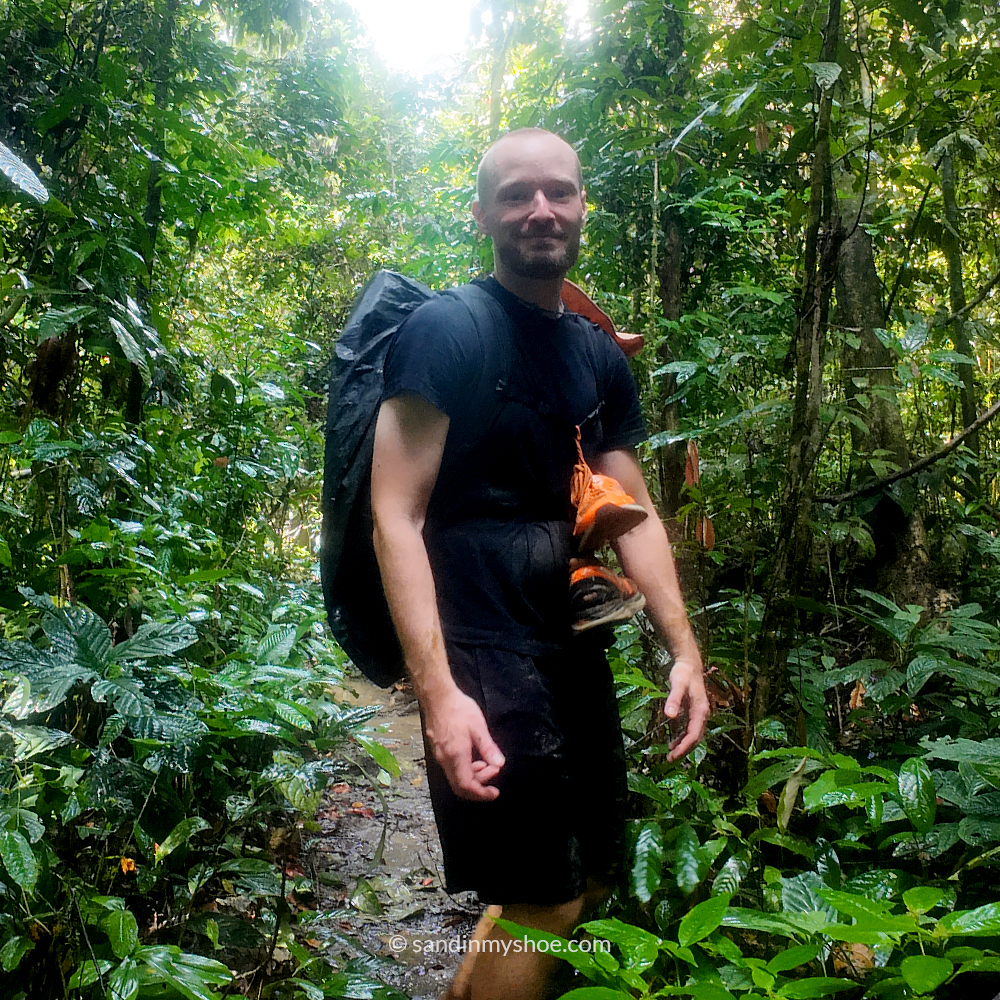
Taman Negara is all about jungle trekking. The moment you step into this vast and ancient rainforest, you’re invited to explore its depths through hikes and treks that immerse you in its natural beauty.
“Oh, glorious mountain, tell me your secrets,” I said. The mountain responded, “You need a guide if you want to hike properly. Without one, you can only trek in designated areas for one hour. It’s for safety, as it’s easy to get lost and forgotten in the jungle.”
One of the most popular experiences is the 2 nights, 1 day tour, where you get to sleep in the jungle itself, which is also the one I did. This option includes two hikes, first day around 9 km and the second day is only around 6 km, and gives you the chance to sleep in a cave deep within the oldest rainforest in the world. Along the way, you’ll visit an indigenous village and finish off with a canopy boat ride.
If you’re not up for the multi-day trek, there are single-day treks available. But if trekking isn’t your thing, you can explore the designated areas on your own, taking a relaxed stroll through the jungle.
Taman Negara is absolutely worth it for trekking enthusiasts, offering an unforgettable journey through one of the world’s oldest rainforests.
Just a heads-up: watch out for leeches—they’re tiny, sneaky, and love the damp jungle trails. Long socks or leech socks are your best friends here.
East Malaysia (Island of Borneo)
Sandakan
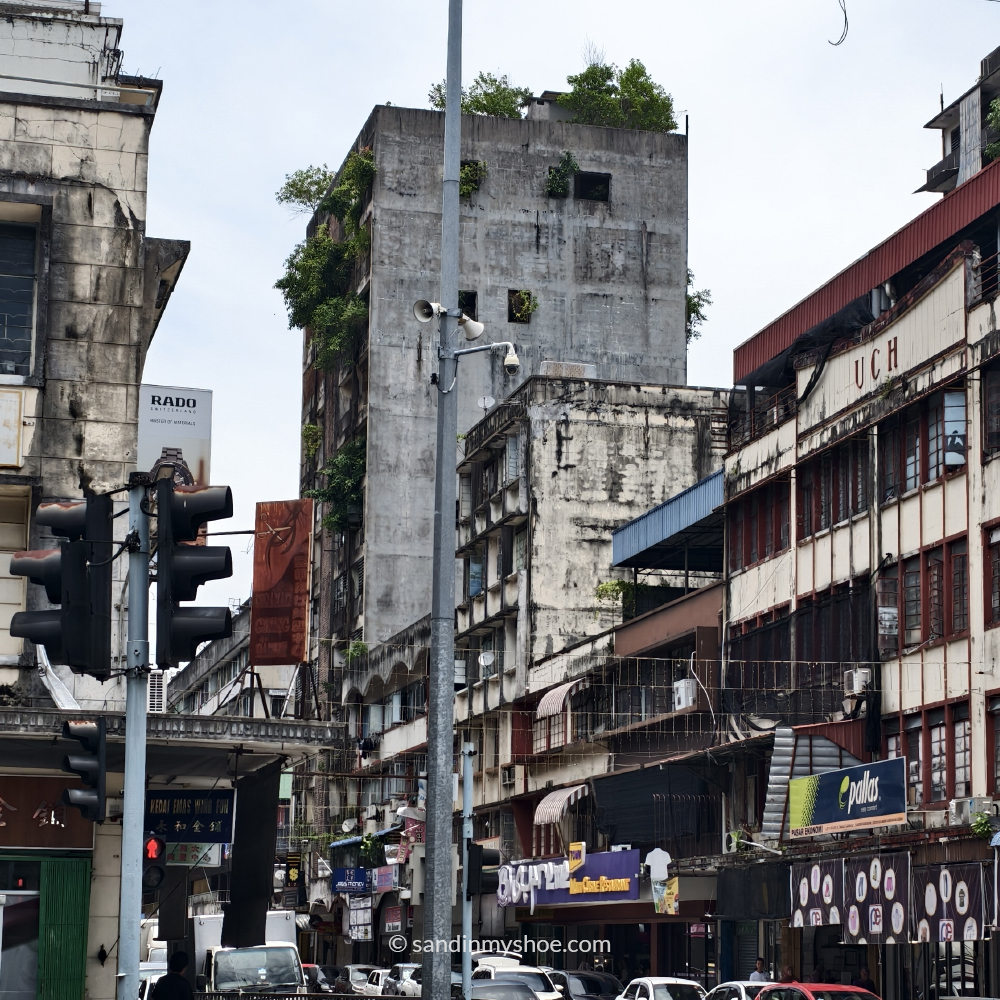
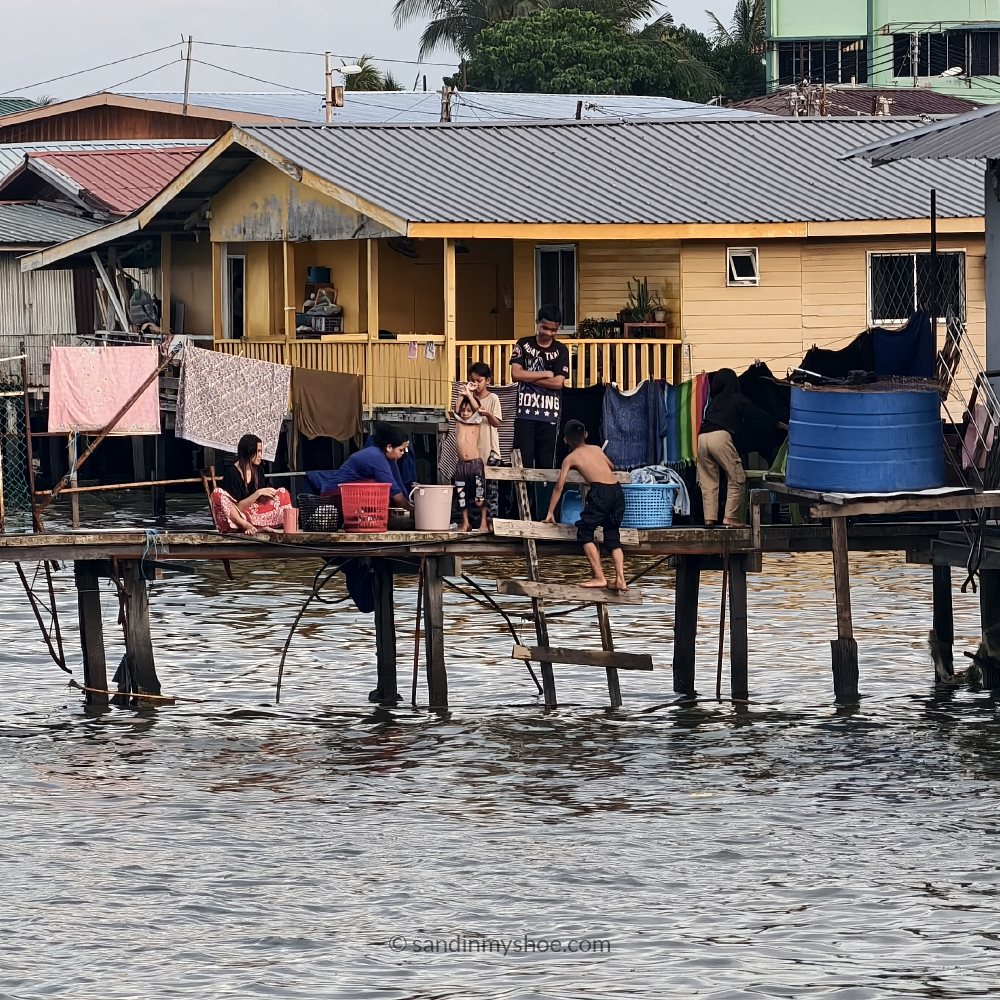
Sandakan is a small, quiet city with a few malls, a movie theater, and just the basics. Some buildings in the center have been partly reclaimed by nature, with trees growing out of them, while others are still very much alive thanks to the locals. It’s not the most exciting place, so if you’re visiting, I’d recommend staying in Sepilok instead.
One sight that’s worth your time is Sim Sim Water Village.
Sim Sim Water Village
This water village has some charm, with decent houses and a sea garden where you can stroll the long flower-covered bridge. Later, grab some seafood at Lot 8. They also arrange boat trips to the Kinabatangan River from here.
Other things
Saturday Night Market (Pasar Umum Sandakan): Fun to wander around. If you’ve got a kitchen, grab some fresh fish and cook at home.
Roastory #1: Decent coffee if you’re in need of a fix.
Sepilok
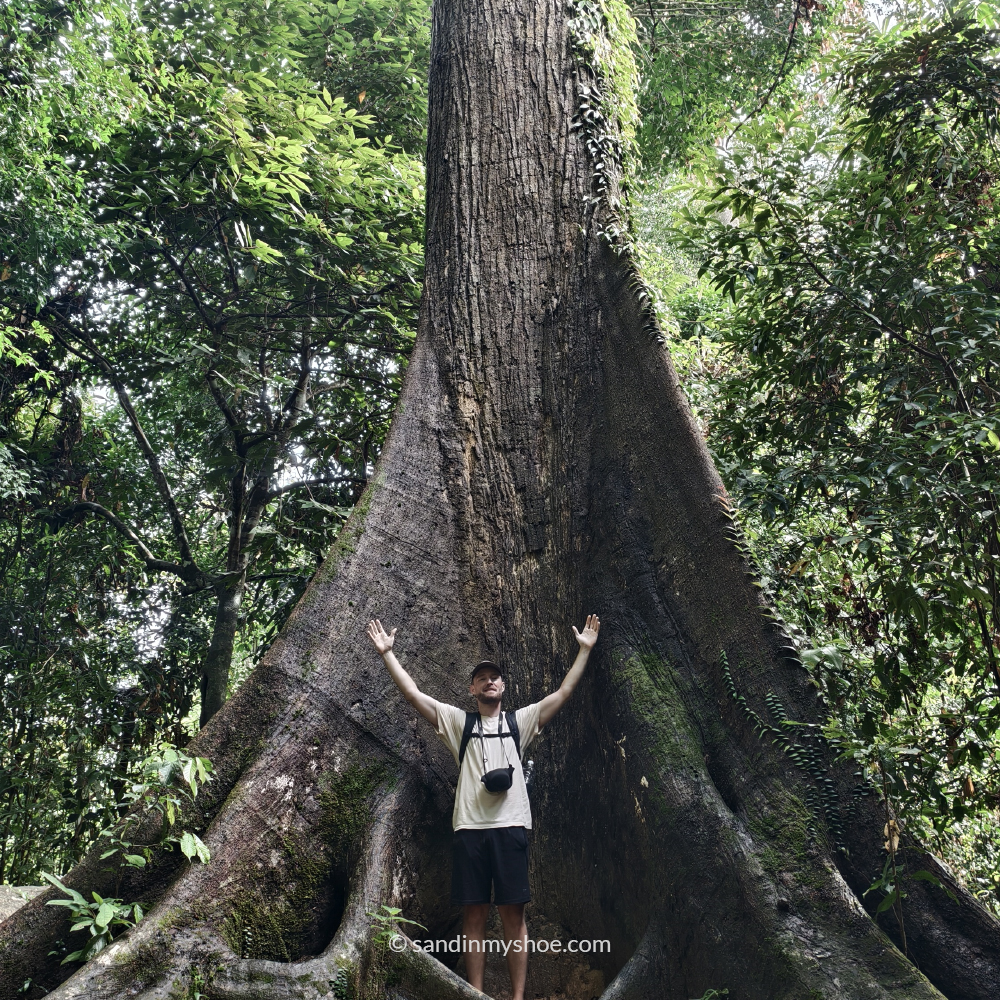
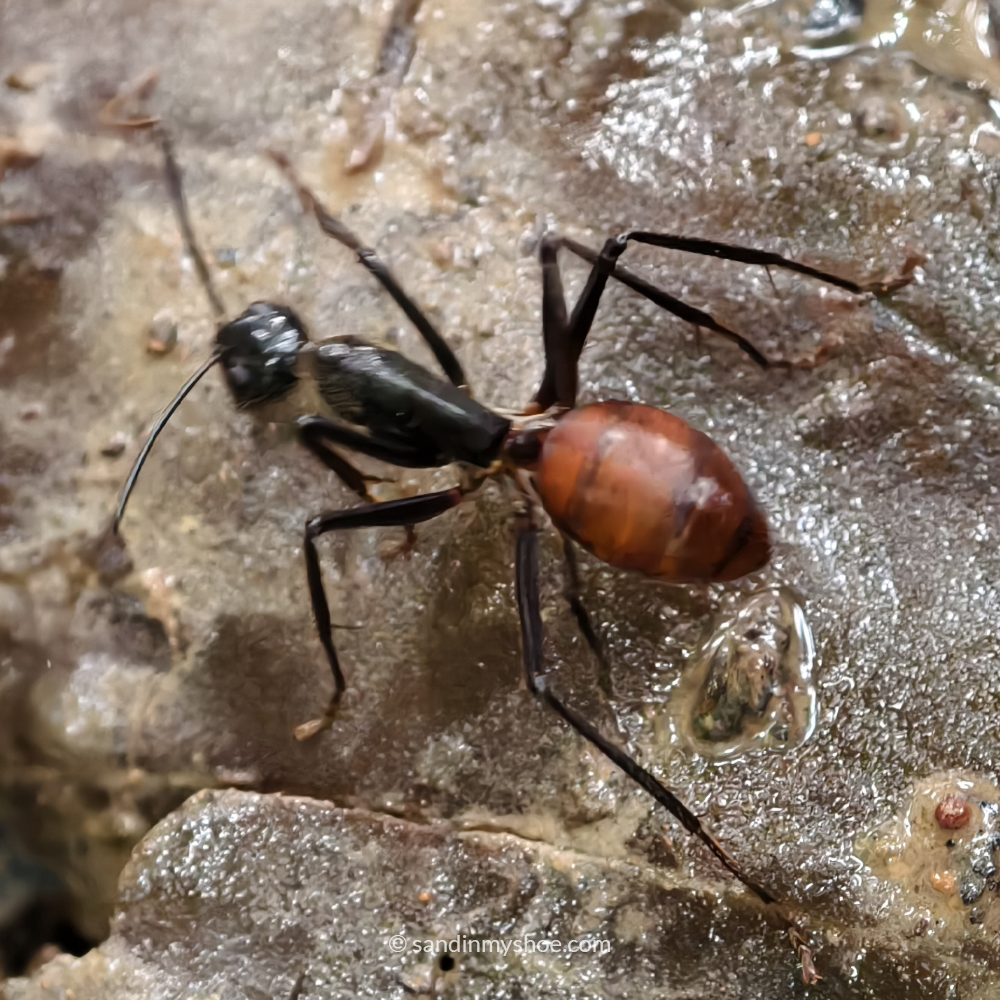
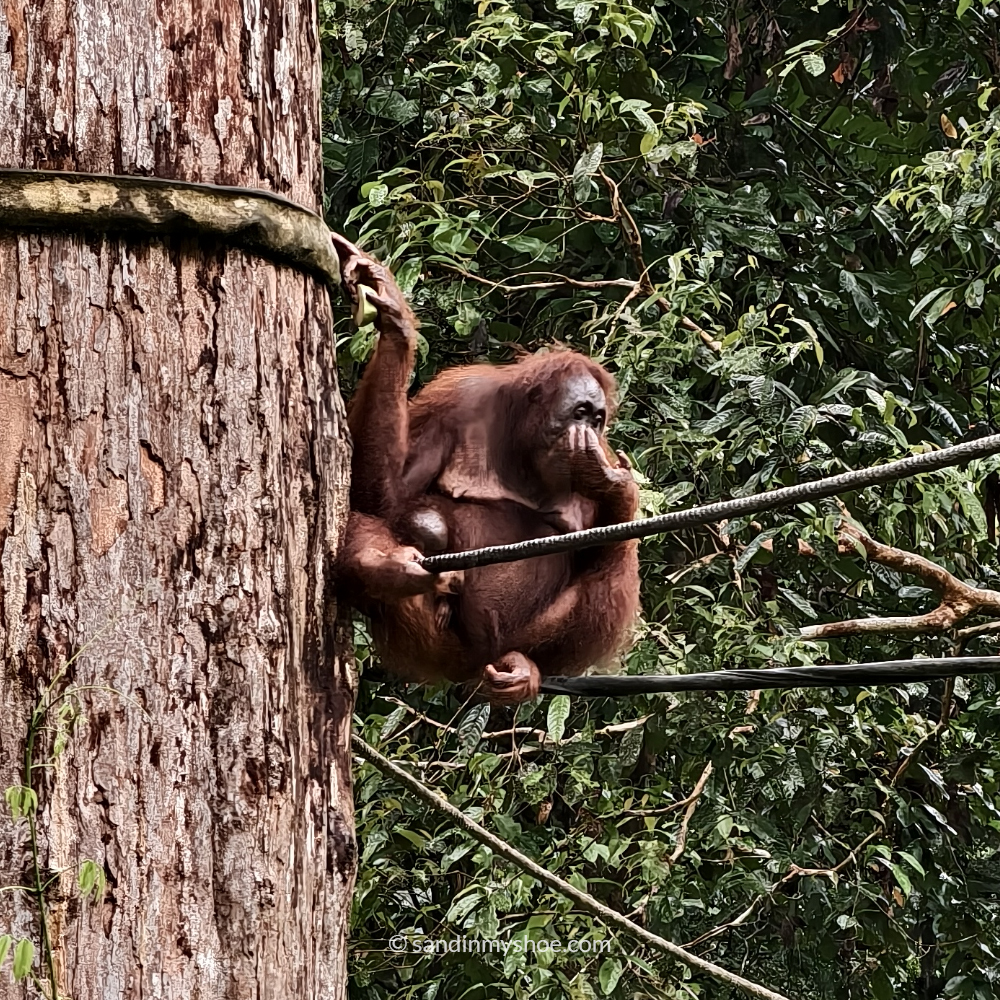
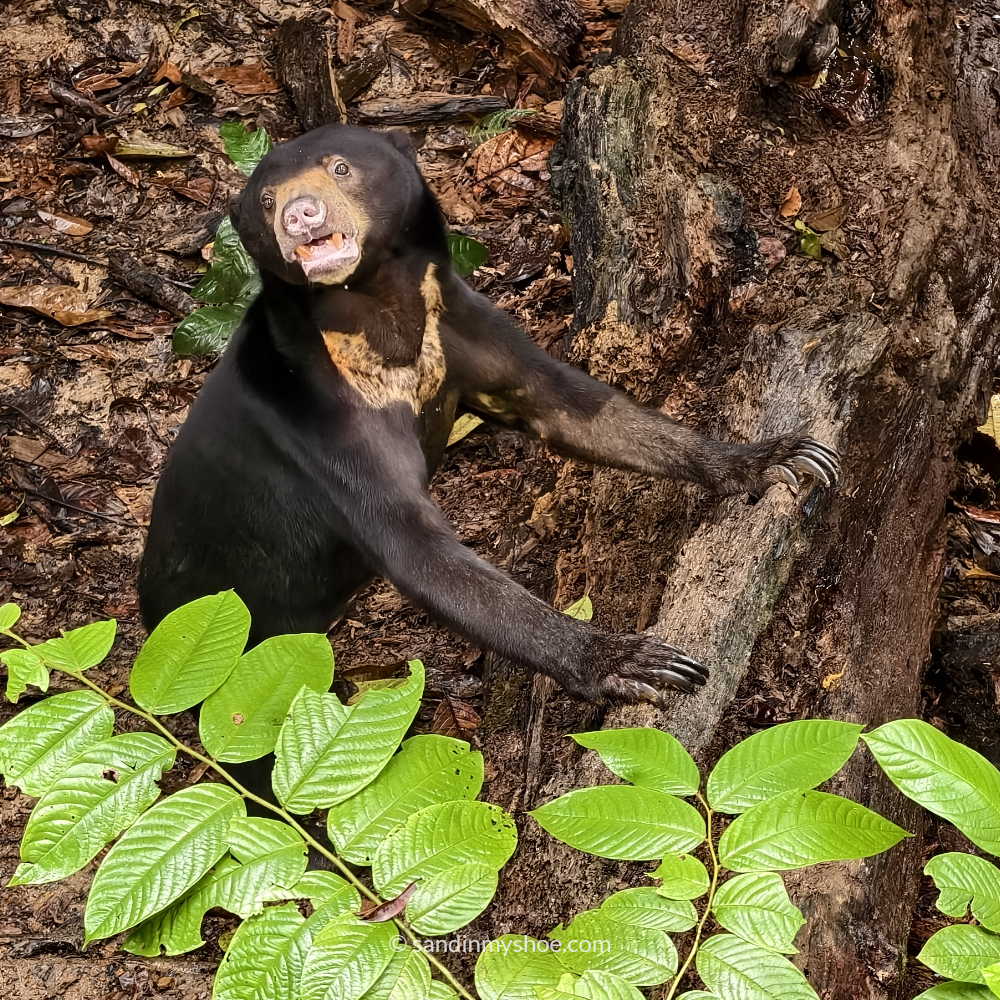
Sepilok is home to several wildlife sanctuaries nestled in rich rainforest surroundings.
The Orangutan Rehabilitation Centre offers a unique experience with both adult and baby orangutans and pig-tailed macaques. Feeding times are key to seeing the animals, and the setup allows them to roam freely while visitors stay on designated paths.
Nearby, the Sun Bear Conservation Centre provides insights into bear rehabilitation and release programs. It’s an immersive experience, especially atmospheric in the rain.
Just 2 km away, the Rainforest Discovery Centre (RDC) is a hub for nature walks, birdwatching and huge ants. Trails vary in length, with towering trees, rich biodiversity, and the ever-present hum of the jungle. A proper start with a good coffee and mosquito spray is recommended and you’ll find a decent coffee shop just inside the entrance.
Kinabatangan
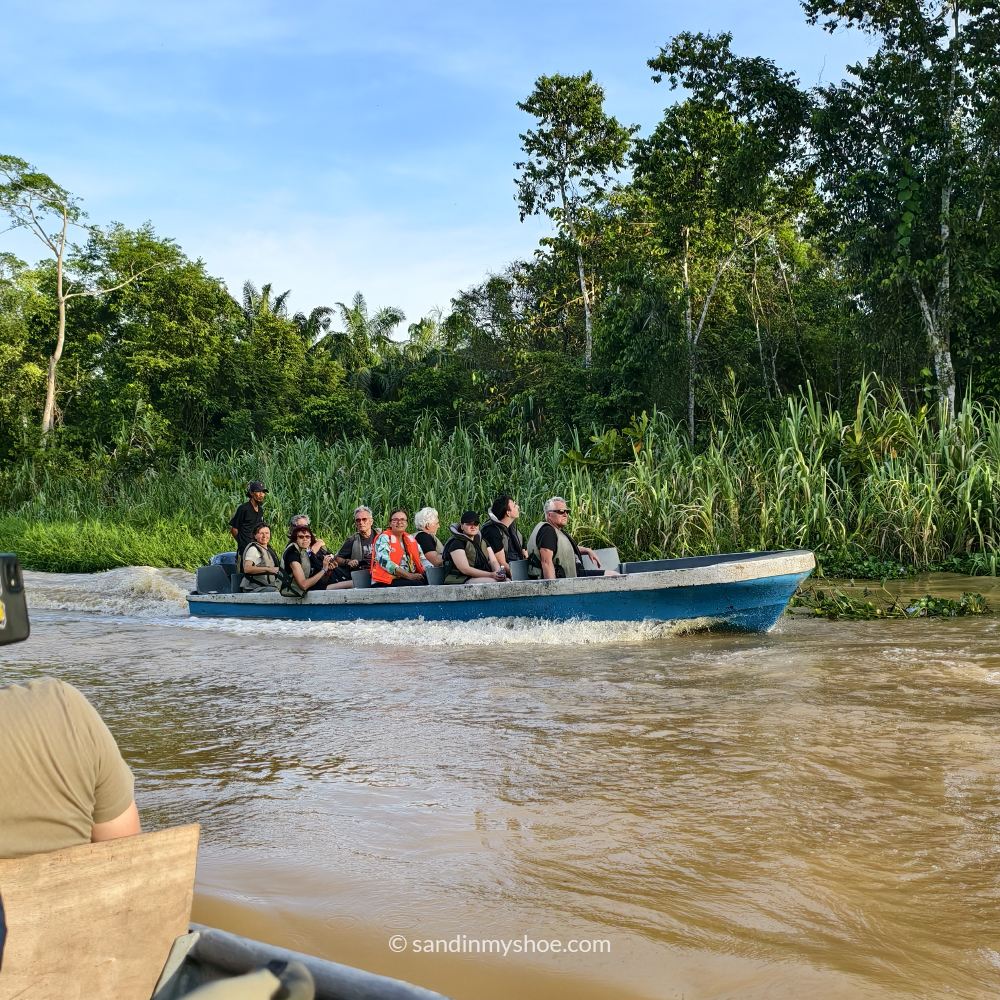
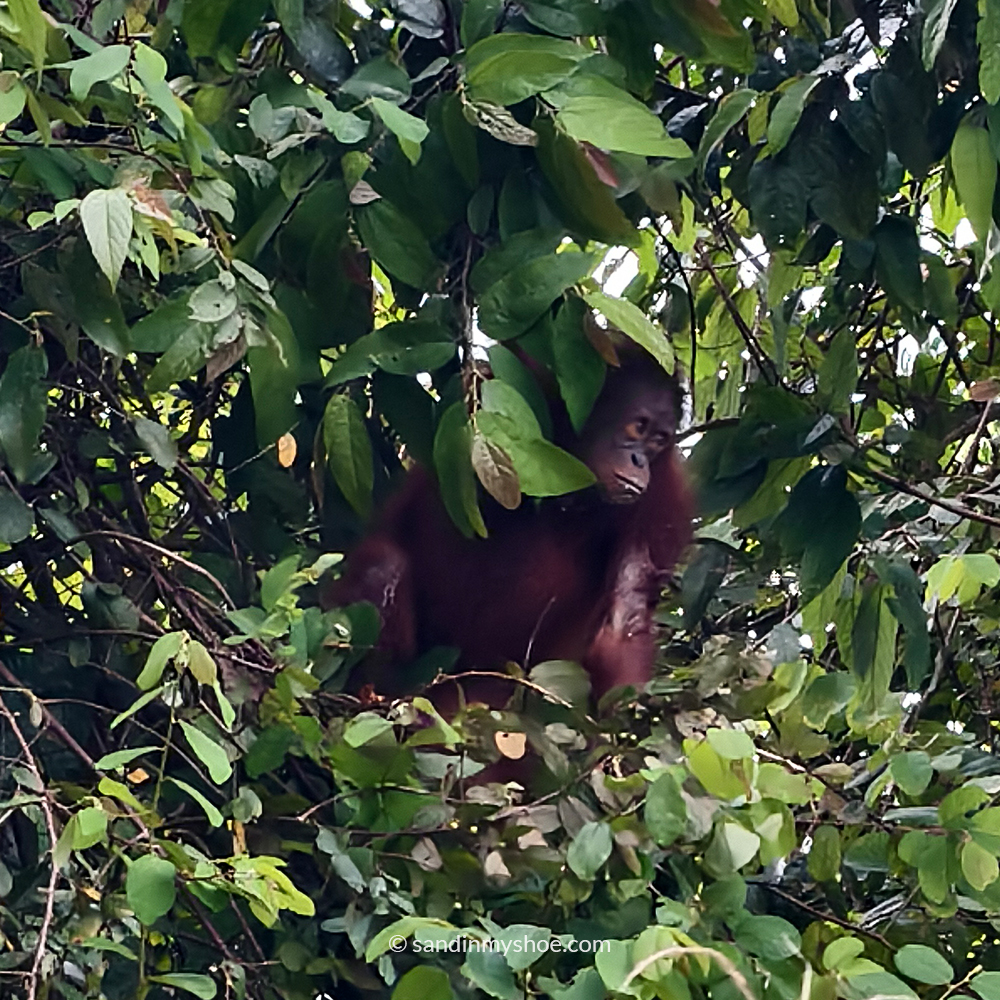
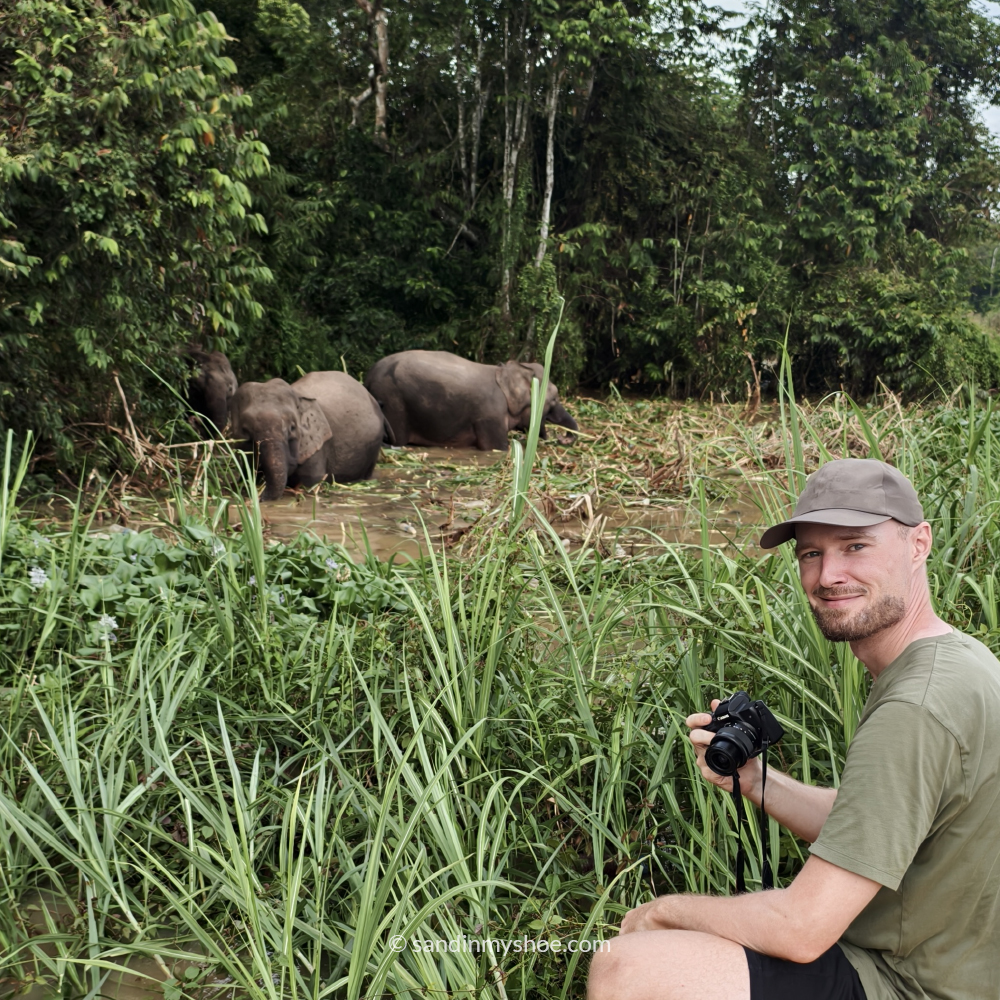
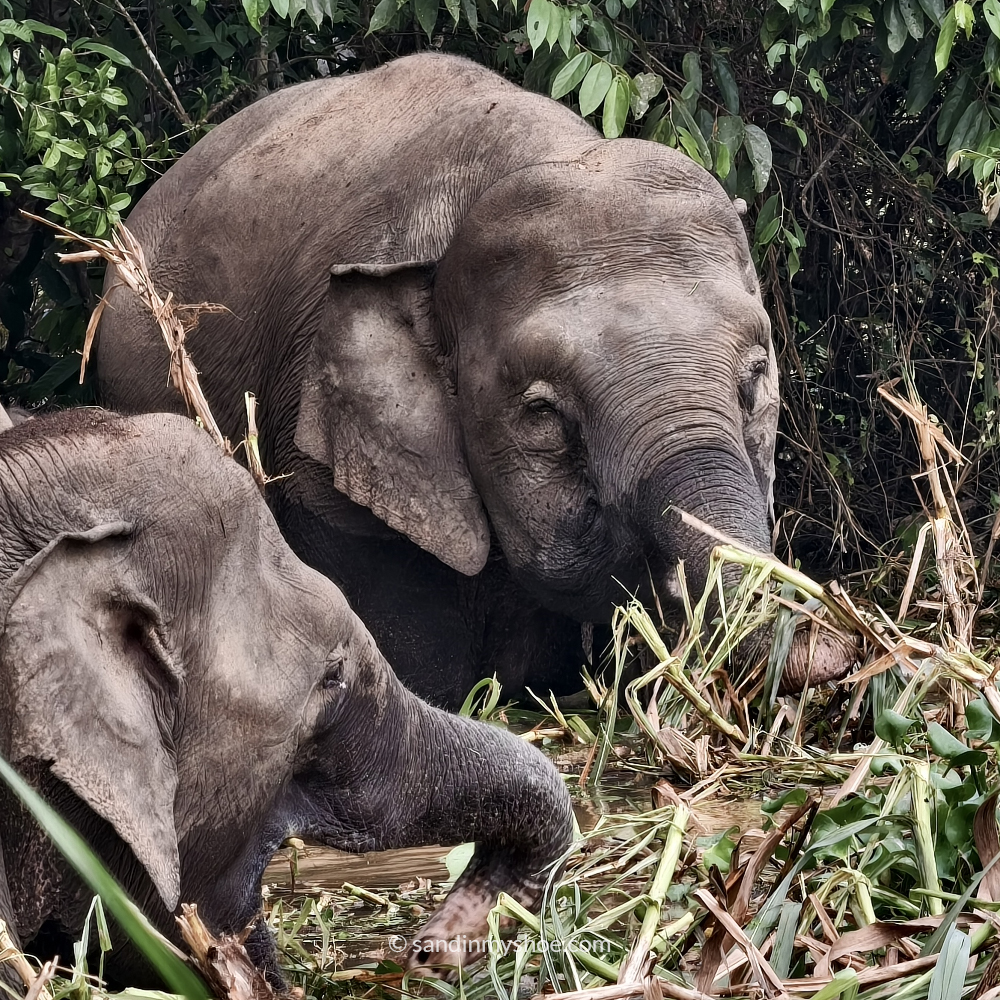
Visiting the Kinabatangan River area offers rich wildlife experiences, river cruises, jungle hikes, cave exploring, and a glimpse into local culture. During the boat safaris, you can expect to see proboscis monkeys, hornbills, orangutans, crocodiles, and possibly even pygmy elephants—both on daytime and night cruises. There are also plenty of hiking opportunities in the area, many of which you can explore on your own.
The nearby Gomantong Caves are a highlight as well, famous for their vast cave systems and eerie atmosphere. But fair warning — they’re also home to a lot of bats and cockroaches. If you’re squeamish, this might not be for you. But if you’re cool with a few (or many) creepy crawlies, it’s a unique and unforgettable experience especially if you go there around 4-6 pm when the bats fly out.
Kundasang
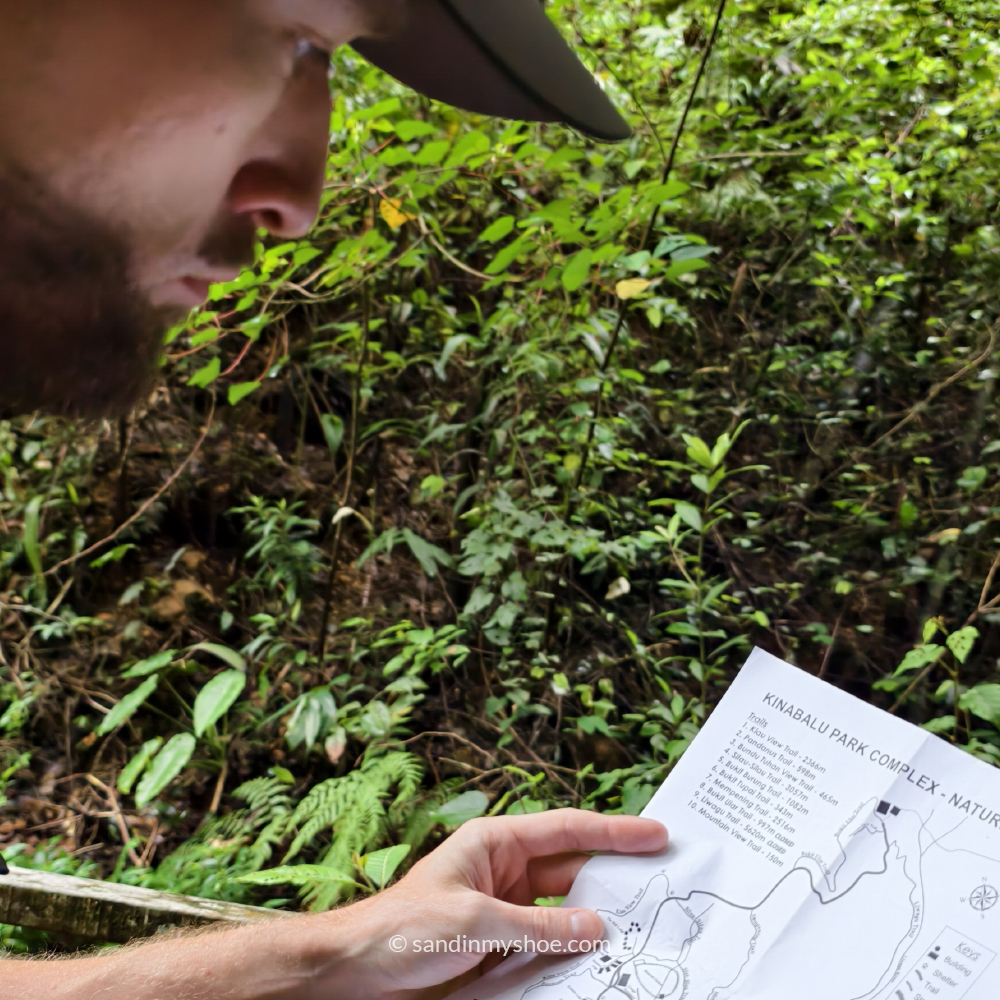
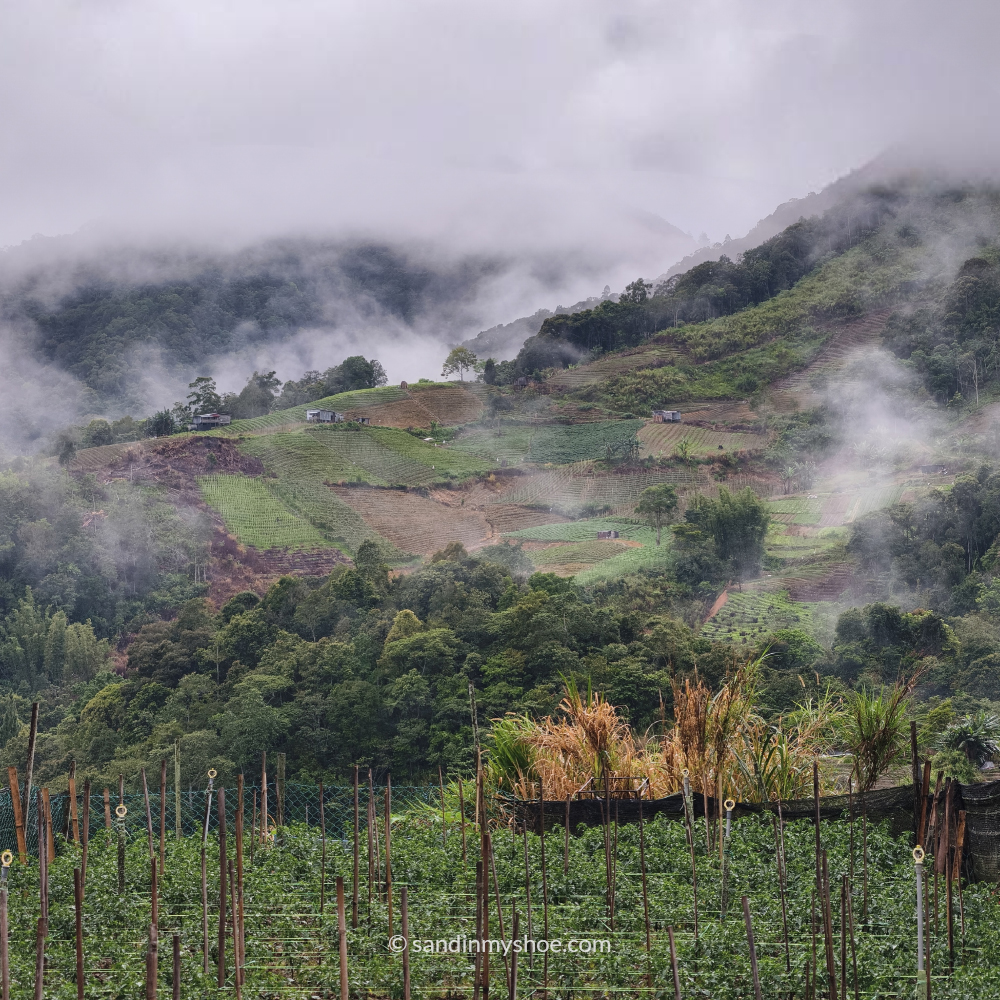
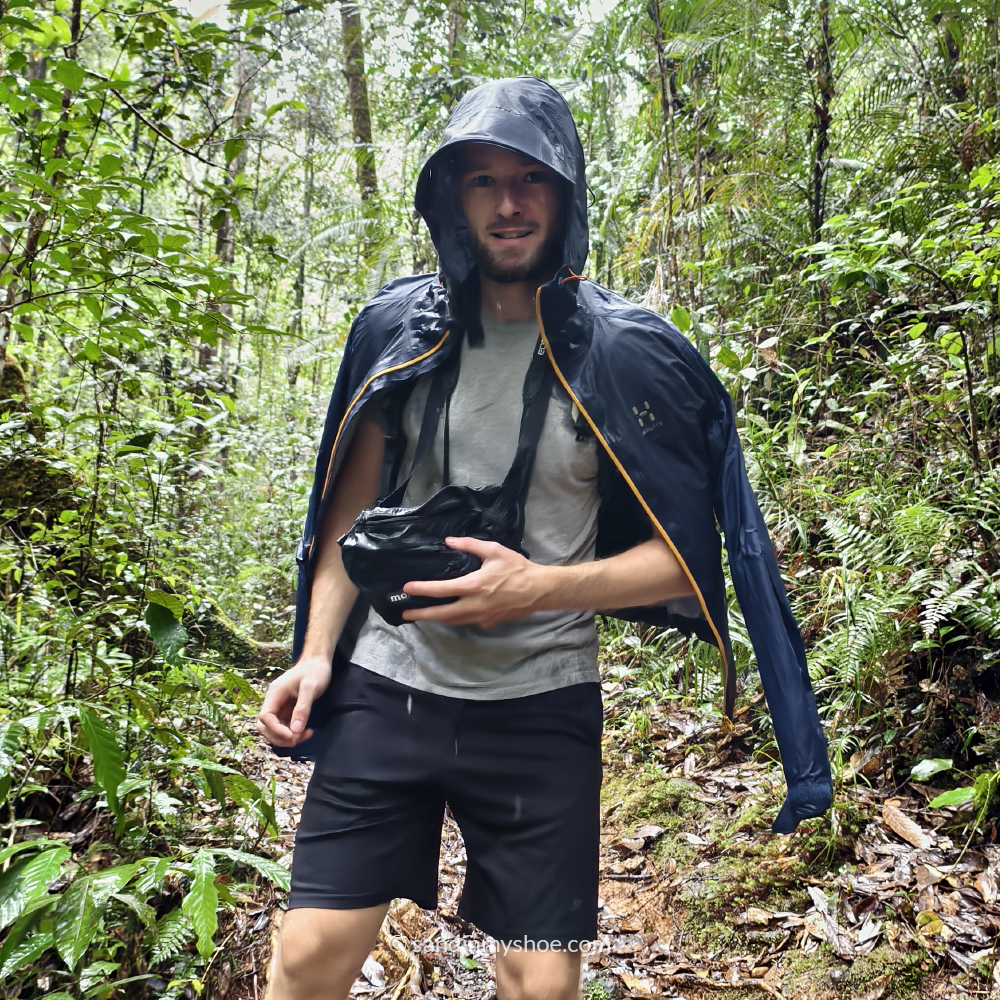
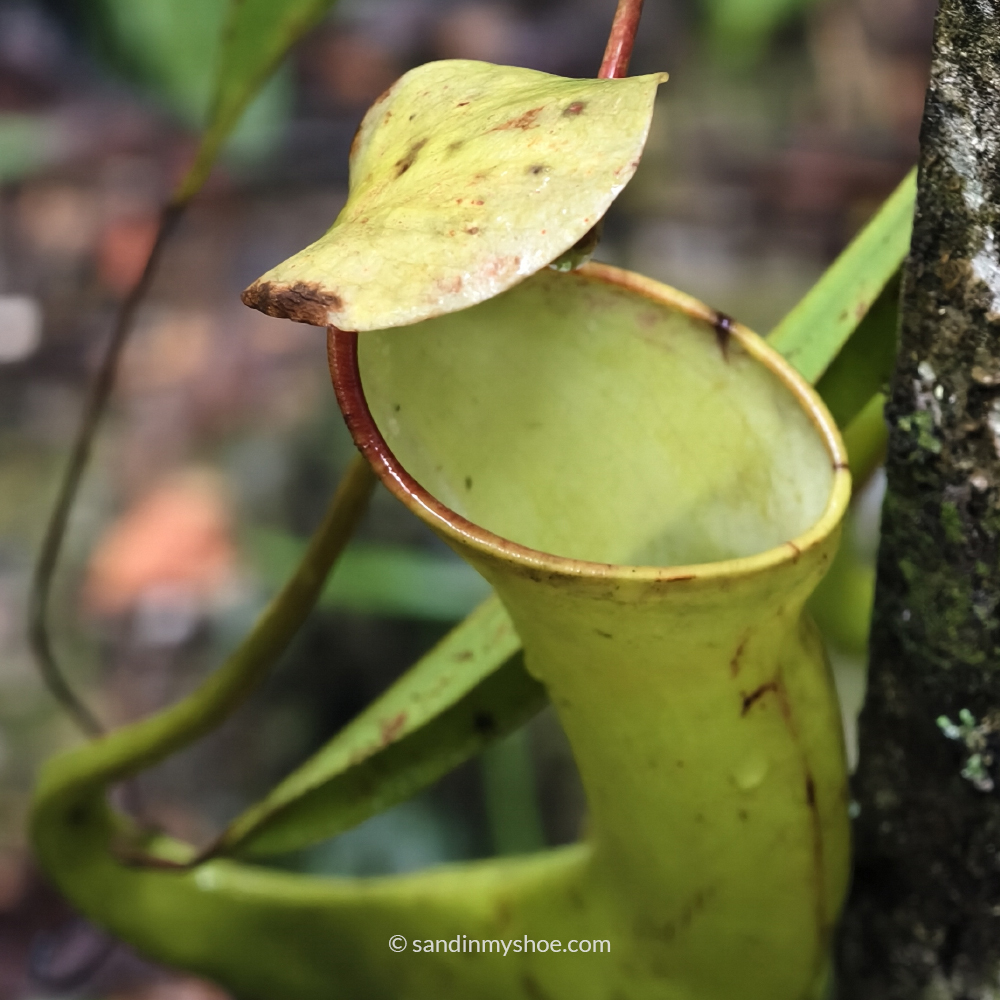
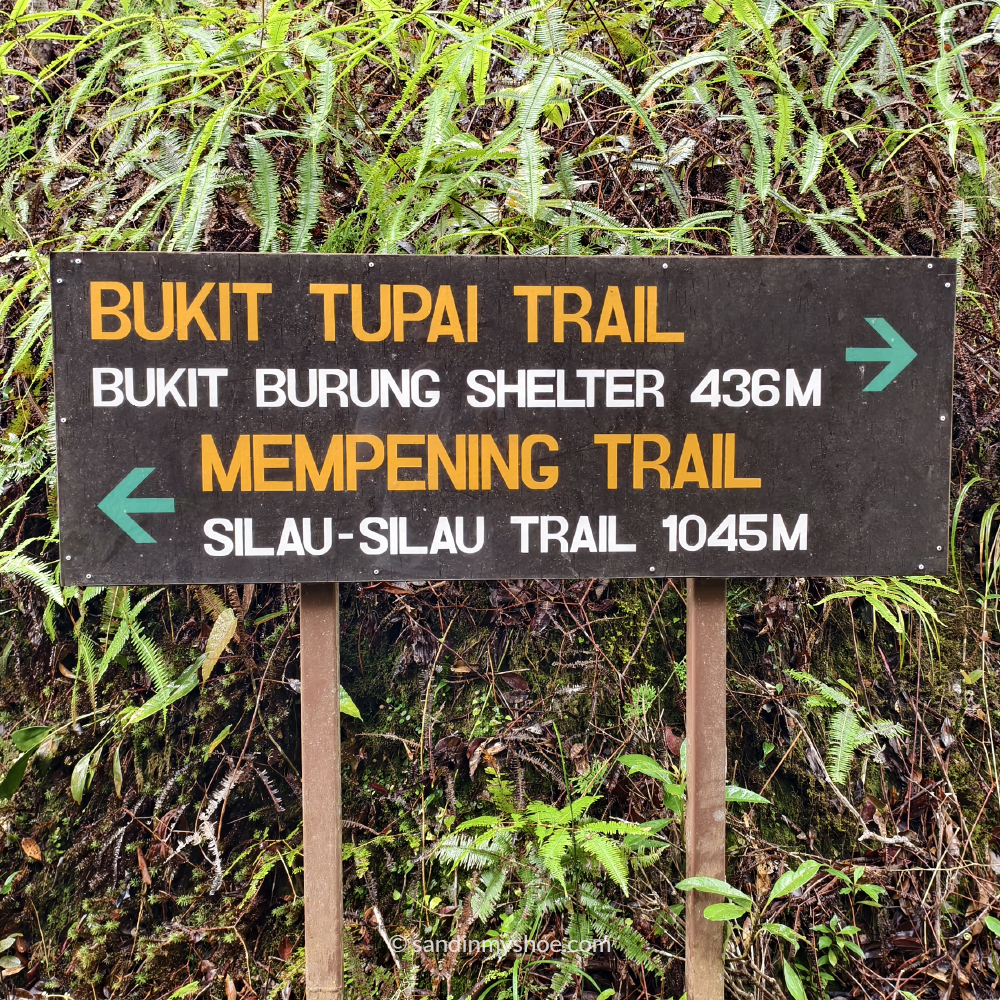
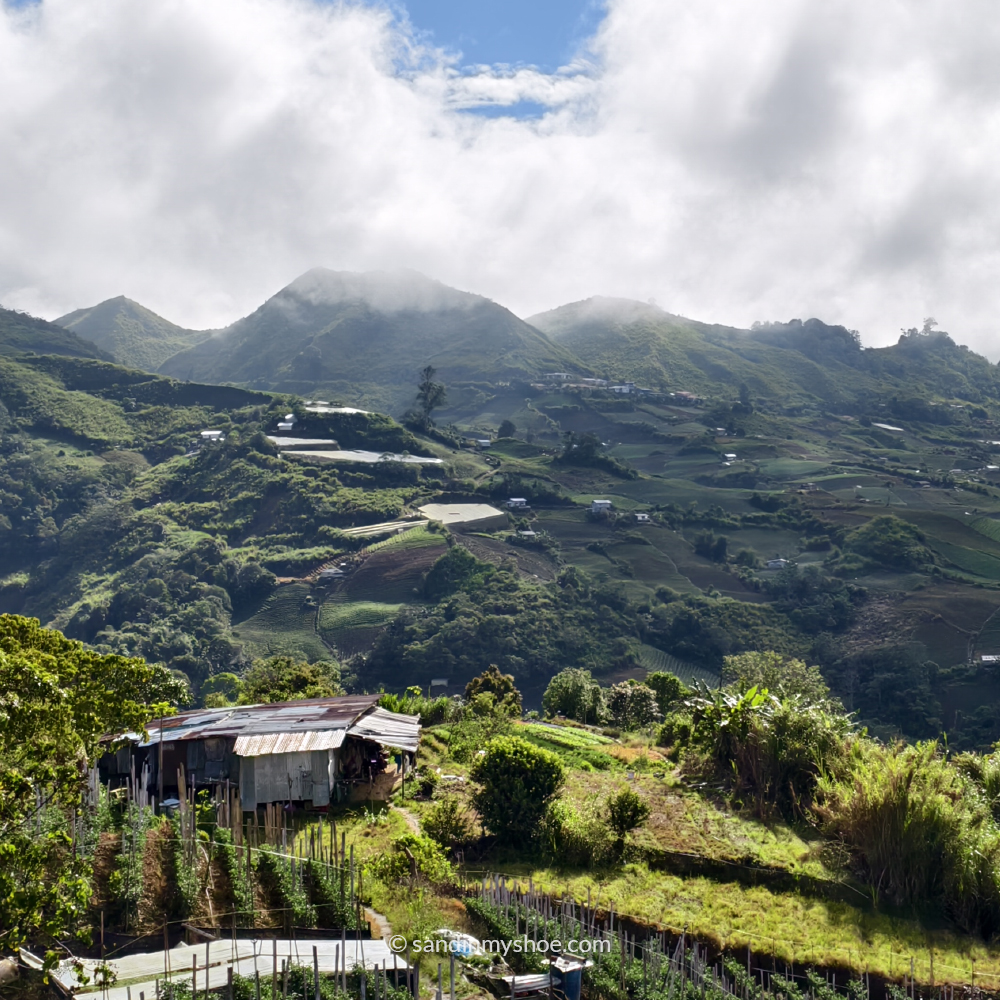
The main prize here is climbing Mount Kinabalu, which takes two days and includes a basic overnight stay on the mountain. If you’re not up for the summit, you can still enjoy hikes in Kinabalu Park. The hikes are all quite easy, maybe medium level with the longest trail. There’s also a small botanical garden worth a quick look—especially for the insect-eating plants. When it comes to animals, there aren’t really any, but expect plenty of insects.
Keep in mind the town isn’t very walkable. It’s a sleepy place and gets really quiet after sundown. That said, it’s friendly and the mist that often rolls in gives it a mysterious, almost surreal vibe.
There are a bunch of hill hikes in the area too, but be aware: almost all of them charge an entrance fee, and some even require a guide—despite the trails being short and easy. I wouldn’t really recommend any of them. I didn’t do all, but if you’re keen on hiking one, check recent Google reviews before heading out.
Danum Valley Conservation Area
Danum Valley Conservation Area is a pristine rainforest in Borneo, teeming with wildlife like orangutans and pygmy elephants. It’s a haven for nature lovers, offering challenging trails and peaceful, untouched surroundings. You can explore on foot or join a night safari to spot nocturnal animals. Accommodations are basic but offer an authentic jungle experience, making it a must-visit for anyone wanting to connect with nature.
Besides the setting, the more intimate experience with wildlife in Danum Valley also gives you the chance to see animals like clouded leopards, binturongs, and gibbons, which are not present in Kinabatangan.
Islands around Semporna
The islands around Semporna offer spectacular diving and snorkeling, even without visiting Sipadan. Expect turtles, healthy coral reefs, schools of fish, and big eels. The underwater life is vibrant and accessible on many of the surrounding islands.
The resorts around the islands are beautiful, but Semporna town itself, especially around the stilt-house waterfront, may look rough but is full of life and hospitality. Friendly smiles, kids eager to practice their English, and spontaneous invitations to meals are common—especially during celebrations like Hari Raya. Just watch your step on the wooden walkways, as some planks can be fragile and the water below is often littered with trash. Food in the stilt houses is just as good as in town restaurants, and the atmosphere offers a raw and authentic feel of daily life in this corner of Borneo.
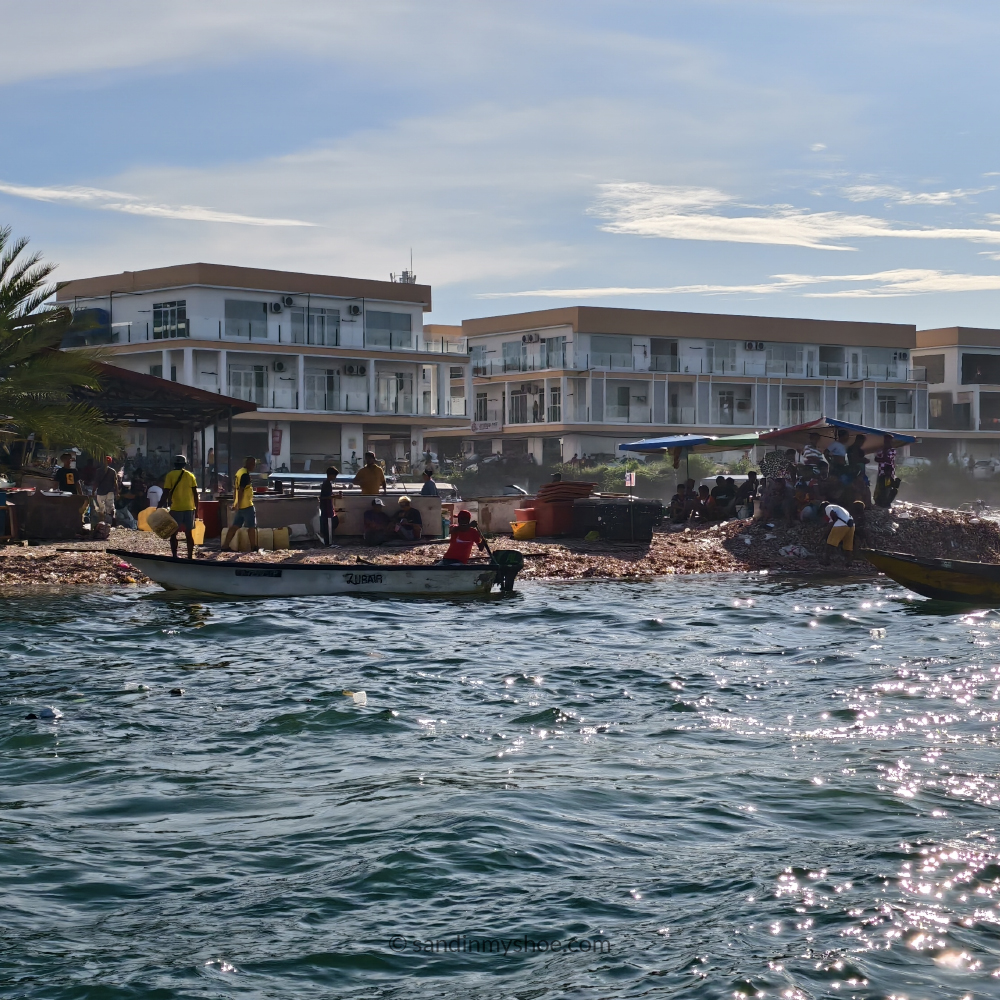
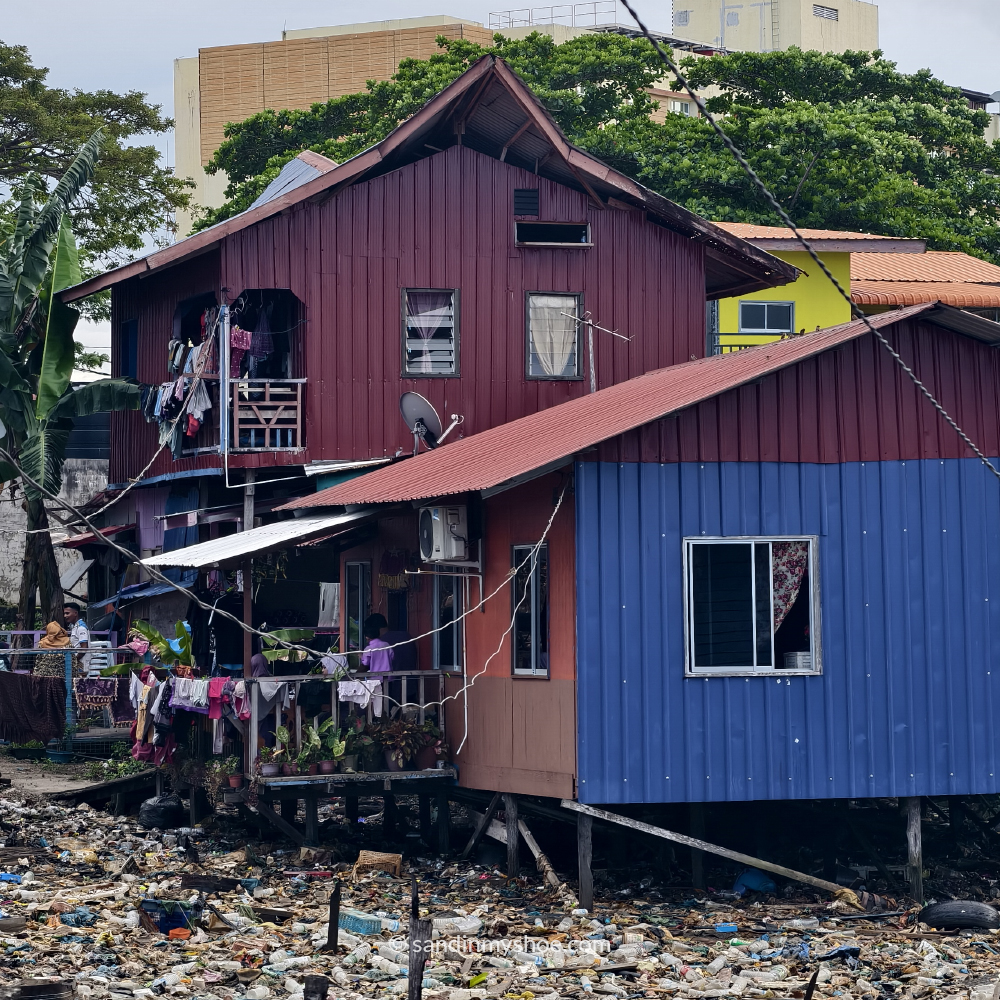
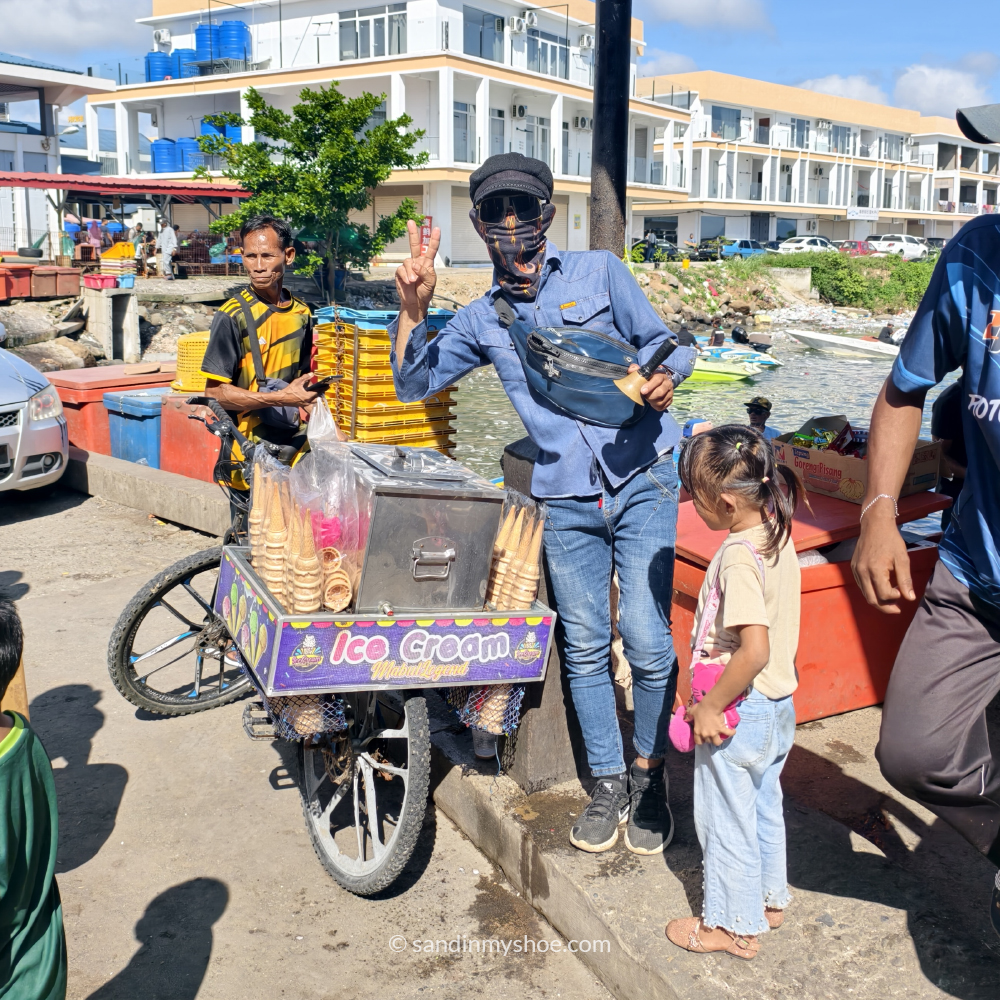
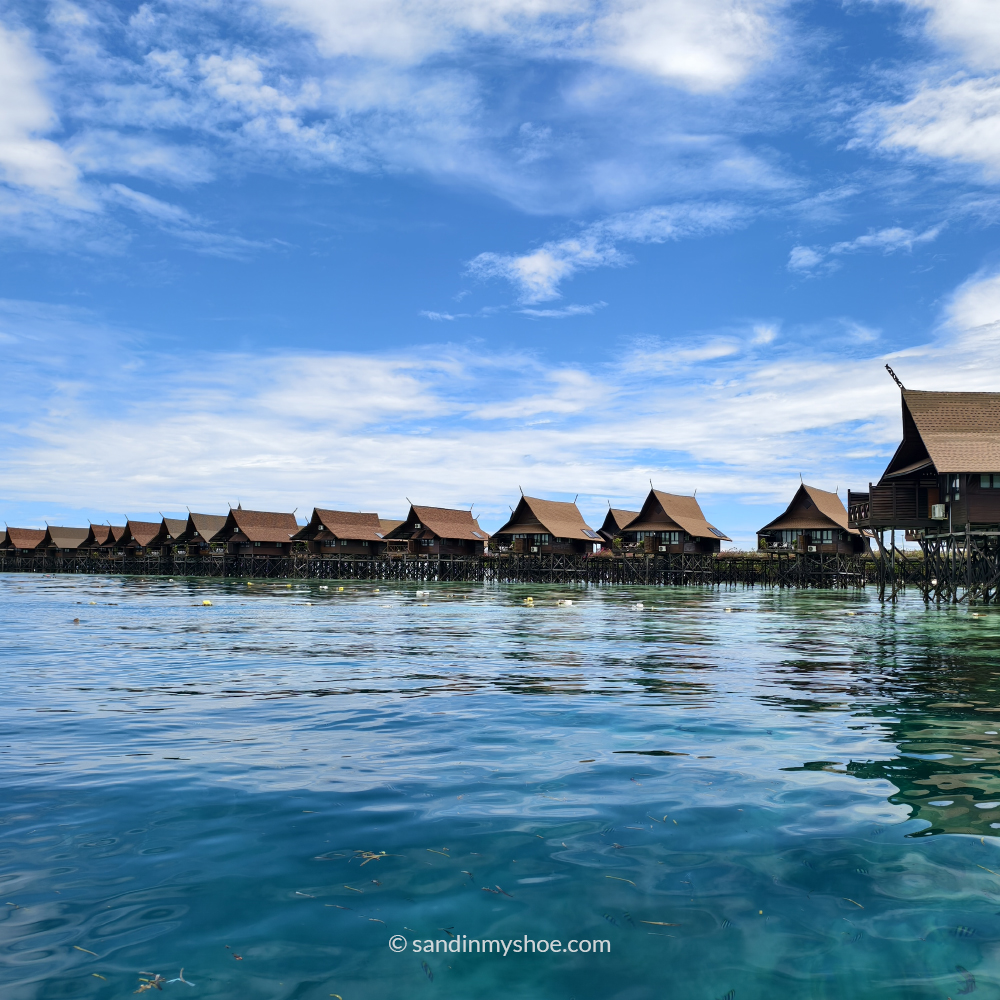
Sipadan
Sipadan is the crown jewel of the area—often rated the number one dive site in Asia. It’s a bucket-list destination for many divers, with dramatic drop-offs, barracudas, sharks, and an unmatched marine ecosystem. But diving here comes with requirements: you typically need an Advanced Open Water certification and at least 20 logged dives. It’s also a more exclusive (and expensive) experience due to strict visitor limits—only 176 permits are issued per day. Expect to pay around €250 for a 3-dive trip.
Mabul and Kapalai
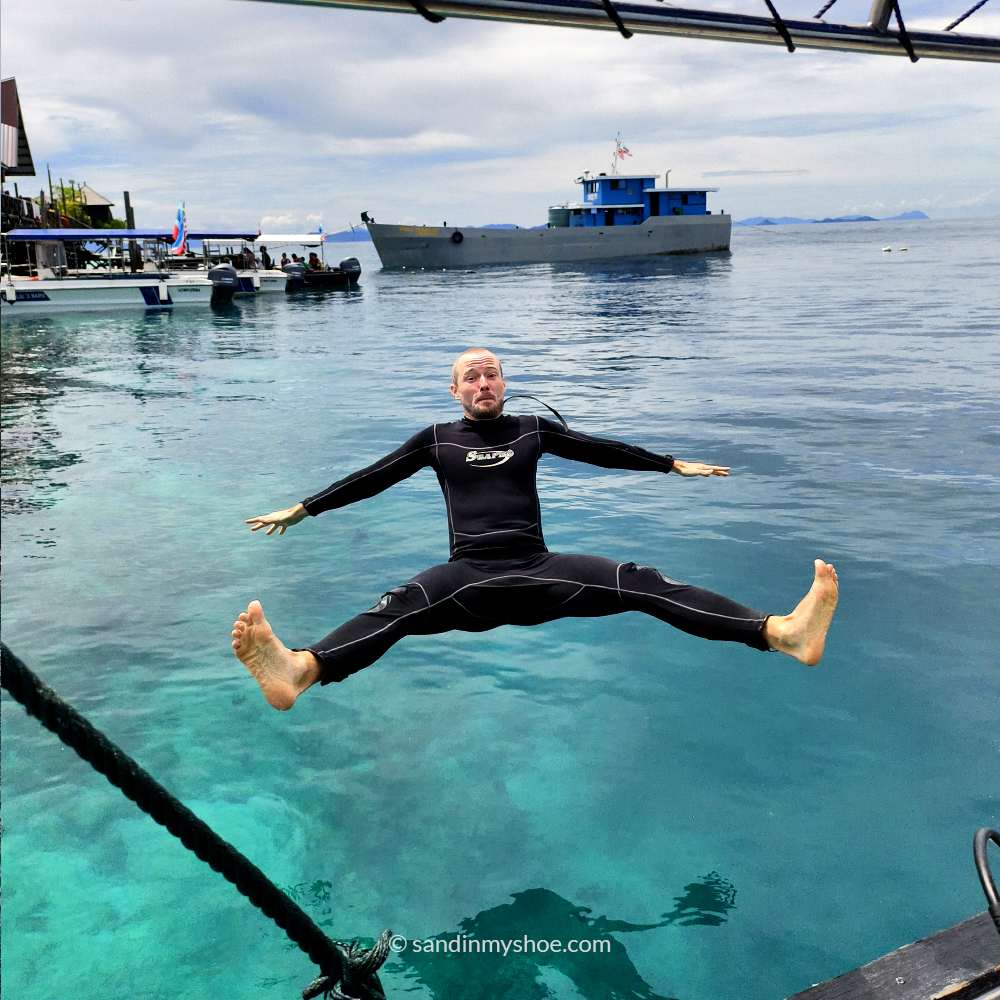
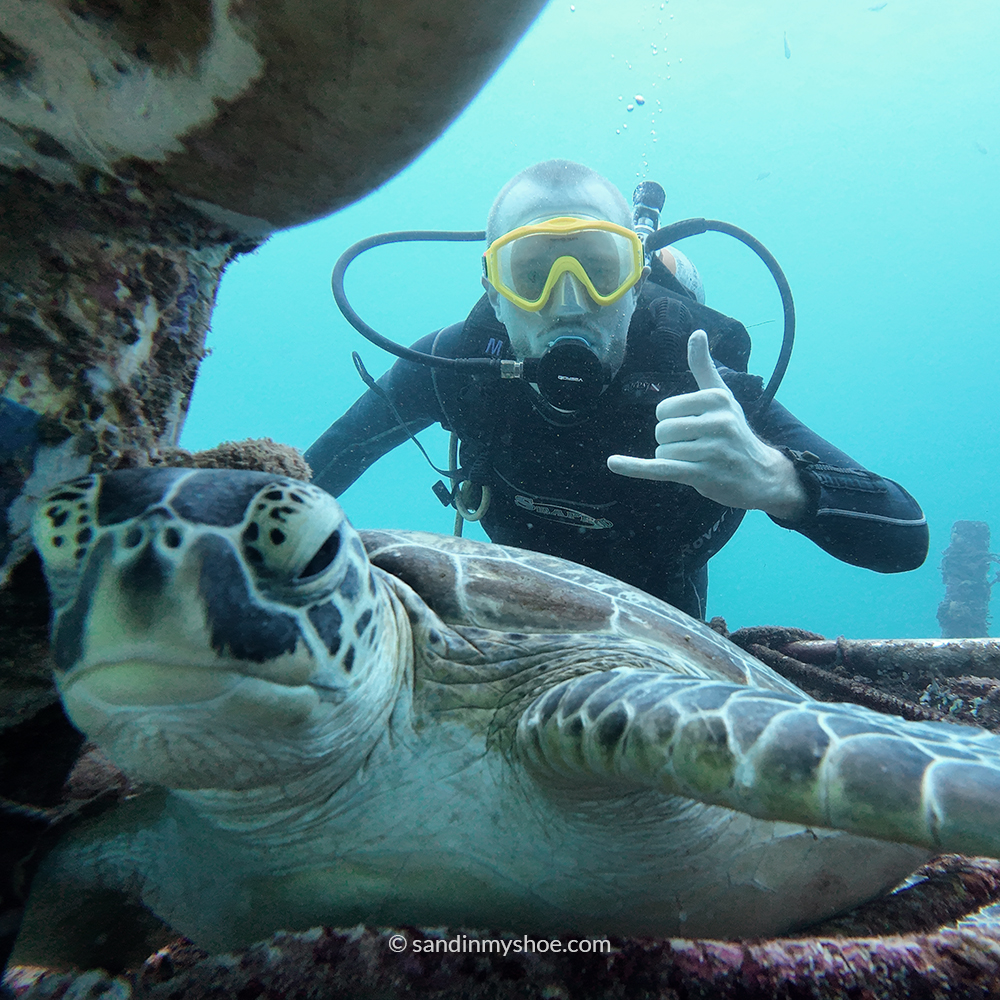
Pulau Mabul and Kapalai are top choices for those who want to dive or snorkel without the Sipadan permit. Mabul has a laid-back backpacker feel and a mix of budget and upscale options. Kapalai is a sandbar turned resort-on-stilts with stunning views and great diving right off your doorstep.

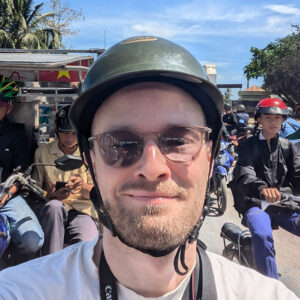
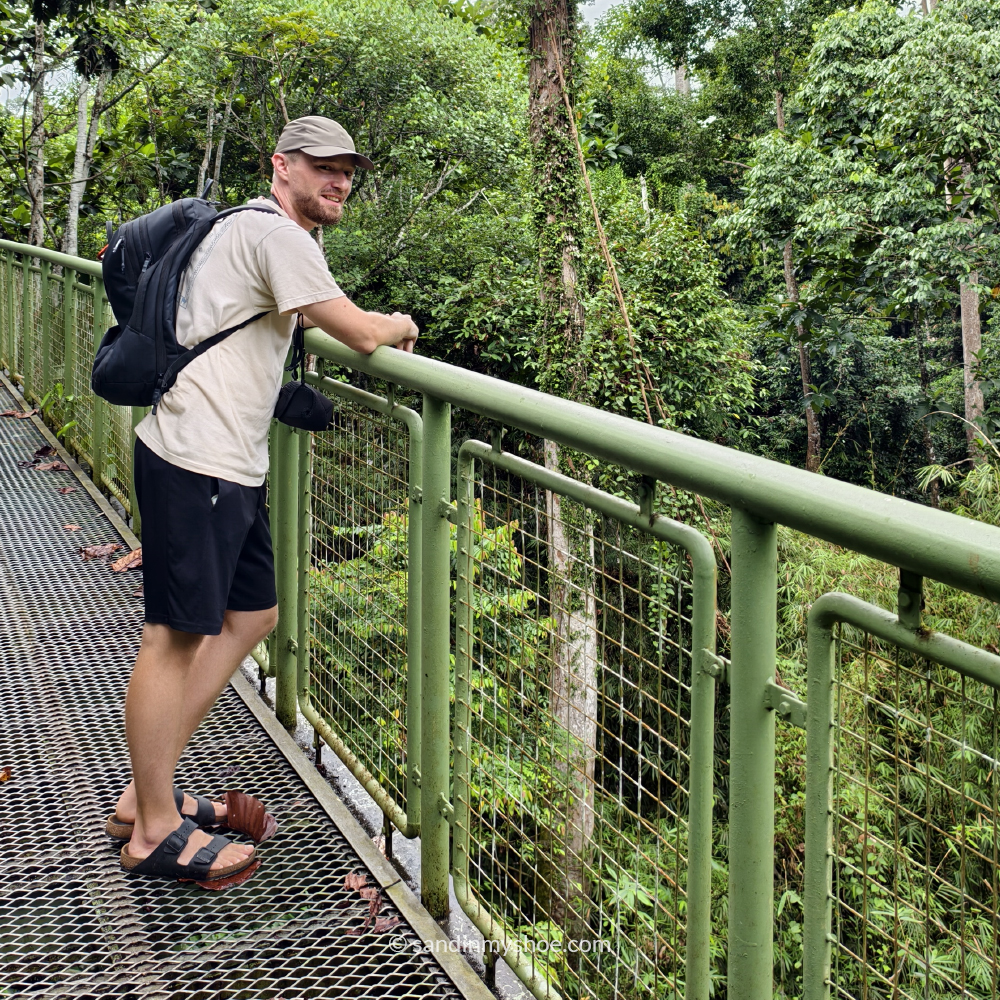



No comments yet, be the first one!
I appreciate hearing from you. If you have any suggestions, questions, or feedback, please leave a comment below. Your input helps ensure the information stays relevant and up to date for everyone.
Thank you for sharing your thoughts!